The SANCB and the way forward for business events

WORKING WITH REMOTE TEAMS


Adjusting to the new norm
FOCUS ON COVID-19 Industry overview
VIRTUAL ATTENDEES
Riding the digital wave
CRISIS CONTROL
Effective communication strategies

EVENT RISK MANAGEMENT Go hybrid
MEET HERE. GROW ANYWHERE.
MENTAL WELL-BEING
Staying positive under lockdown
R55.00 (incl. VAT) ISSN 1684-9264
MAY/JUNE 2020• Issue 91

CONTENTS
VENUES
11 A meeting place of like minds
14 An unrivalled choice
DESTINATION: MAURITIUS

12 Word on the ground
BEST PRACTICE
16 Now is no time to panic
21 Up to us
17 5 mins with… the SANCB
REMOTE TEAMS
18 Keep business ticking over, remotely
20 Tips and tools for managing remote teams
WELL-BEING
22 Managing your mental health Clinical psychologist Michelle Nortje on proactively managing your mental health during lockdown in the wake of Covid-19

04 COVER STORY
Part of the solution
Meetings magazine talks to Amanda Kotze-Nhlapo, chief convention bureau officer at the SANCB, on the role the business events industry can play in our country’s economic recovery in the wake of Covid-19
VIRTUAL EVENTS



24 New call to action
26 Virtual attendee
HYBRID EVENTS
28 Manage your risk and host a hybrid event Hybridising your event could not only deliver on the best of both worlds but be the solution for how the events industry moves forward


CRISIS COMMUNICATION
30 “Houston, we have a problem” We look at just some of the considerations that conference and exhibition venues can include as part of their crisis and communication management

Q&A: HR ADVICE
32 HR management in a time of crisis Alan Hosking advises on how employers and employees can best navigate the challenging conversations that need to take place around Covid-19 and its impacts
HOSPITALITY
34 Value-driven tourism Post-pandemic price-conscious travellers will want bigger bang for their buck than ever before. Meetings hears from the experts on the ground what this means for accommodation offerings


06 FOCUS
In the face of adversity, we will rise
In a matter of months, Covid-19 has wreaked havoc across the world, bringing commerce and whole industries to their knees. Meetings understands what this means for the business events industry and how we can move forward

06
MAY/JUNE 2020 30 34
TALKING POINTS 37 AIPC 38 AAXO + EGF 39 SAACI +Travelbags REGULARS 2 Ed’s Comment 3 Tidbits 40 Miss Meet 12 22 04
The Planner is growing its footprint – connect with us today!
@theplannerguru The Planner @theplannerguru the-planner-guru
CHANGING THE NARRATIVE
Covid-19 has hit us all in a very real and raw way. Between the first case being announced and the lockdown almost three weeks later, the impact of the pandemic reaching South Africa’s shores was more a conjunction of pandemonium and panic. Within weeks, fears of job losses came to fruition and the future of business continuity across the board seemed uncertain.
While we have a long way to go, with lockdown measures still in place to allow for the safe return of South Africa’s citizens to their posts, what we have seen from the MICE industry in particular is the resilience and determination to change the industry narrative for the better. Nowhere was this more evident than in our Special Edition showcasing the industry’s Lockdown Heroes and their innovative offerings during this time.
In this issue of Meetings, in our main feature on page 6, we unpack just how the Covid-19 pandemic has tested the industry and the ways in which this is currently shifting how we live, work and play. We talk to business owners and executives about their experiences and how they are innovating to safeguard the livelihoods of their employees.
Much of the current innovation we are seeing in the business events and tourism sector can be found online, with virtual events and experiences finding favour as the latest means to communicate with audiences.
On page 24, we have provided a watertight checklist for bringing together a virtual event and on page 26, we look at virtual events from an attendee’s perspective.

With most of us working from home during this period, it has been an adjustment for both businesses and staff, as they get used to operating as a remote team and functioning as effectively and seamlessly as before. We
explore the growing trend towards this on page 18 and also look into how to keep your team focused and motivated.
For many, the global pandemic and lockdown are adversely affecting mental well-being and it is more important than ever that we care for ourselves and each other by having healthy attitudes and positive mindsets. On page 22, we understand what steps we can take to keep ourselves in check and ensure those around us are doing the same.
We are still seeing a steady increase in the rate of new infections, so please do look after yourselves and, where you can, those around you.
NOTE: In my previous Ed’s Comment, I wrote that I was due to take up a post elsewhere. After thorough discussions with the publisher around the current situation faced by our industry, we managed to secure a win-win scenario for all parties, resulting in me remaining in my existing capacity as Editor of Meetings magazine. I look forward to continuing our journey together, facing the various challenges and subsequent successes together, as the united MICE industry we are.
Please feel free to mail me at shanna.jacobsen@3smedia.co.za with your stories, suggestions and industry news.

Shanna
Managing Editor Shanna Jacobsen (shanna@3smedia.co.za)
Digital Editor Pippa Naudé
Chief Sub-Editor Tristan Snijders
Head of Design Beren Bauermeister
Contributors Aloysius Arlando, Gabi Babinszky, Glenton de Kock, Richard Downing, Michelle Hinrichsen, Barbara Larson, Erin Makarius, Greg McManus, Projeni Pather, Jack Smit, Susan Vroman
Production & Client Liaison Manager





Antois-Leigh Nepgen
Group Sales Manager Chilomia Van Wijk

Financial Manager Andrew Lobban
Bookkeeper Tonya Hebenton
Distribution Manager Nomsa Masina
Distribution Coordinator Asha Pursotham
Advertising Vanessa De Waal +27 (0)84 805 6752 | vanessa@3smedia.co.za
PUBLISHED BY
Publisher Jacques Breytenbach
3S Media
46 Milkyway Avenue, Frankenwald, 2090 PO Box 92026, Norwood 2117

Tel: +27 (0)11 233 2600 Fax: +27 (0)11 234 7274/5
www.3smedia.co.za
Meetings MAY/JUNE 2020 © Copyright

All rights reserved 2020
www.theplanner.guru
SUBSCRIPTION
R330.00 per annum (incl. VAT) | subs@3smedia.co.za

ISSN 1684-9264
NOTICE OF RIGHTS Meetings is published bi-monthly by 3S Media. This publication, its form and contents vest in 3S Media. All rights reserved. No part of this book, including cover and interior designs, may be reproduced or transmitted in any form or by any means, electronic or mechanical, including photocopying, recording or by any information storage and retrieval system, without permission in writing from the publisher, nor be otherwise circulated in any form of binding or cover other than that in which it is published and without a similar condition being imposed on the subsequent purchaser. The authors' views may not necessarily reflect those of the publisher or associated professional bodies. While every precaution has been taken in the preparation and compilation of this publication, the publisher assumes no responsibility for errors, omissions, completeness or accuracy of its contents, or for damages resulting from the use of the information contained herein. While every effort has been taken to ensure that no copyright or copyright issues is/are infringed, 3S Media, its directors, publisher, officers and employees cannot be held responsible and consequently disclaim any liability for any loss, liability damage, direct or consequential of whatsoever nature and howsoever arising.
MEMBER OF IN COLLABORATION WITH
Take
www.theplanner.guru
2 • MEETINGS l MAY/JUNE 2020
www.theplanner.guru
the online Q&A test and start gaining credits.
ED’S COMMENT
The ABC logo is a valued stamp of measurement and trust, providing accurate and comparable circulation figures that protect the way advertising is traded. Meetings is ABC audited and certified.
Covid-19 protocols for local tourism industry launched
Towards the end of May, the Tourism Business Council of South Africa (TBCSA) launched the Tourism Industry Standard Protocols for Covid-19 Operations to better guide the tourism industry on how to maintain health and hygiene standards as set out by the World Health Organization (WHO), the National Institute of Communicable Diseases (NICD) and the Department of Health (DoH).


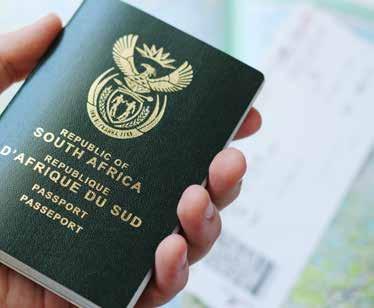
“The tourism industry has developed comprehensive protocols for the operation of all types of tourism businesses or facilities in times of the Covid-19 pandemic. The protocols align with the WHO, NICD and DoH guidelines and advice, and will be revisited as required on an ongoing basis. They cover customer information, PPE, physical distancing, and sanitisation and hygiene practices, among others, for staff and customers,” says the report (access it here: https://cutt.ly/JyV7d4g).
Towards the end of May, it was announced that the Mauritian government had launched the Covid-19 Rapid Response Facility (CRF) in an effort to fight against the ongoing pandemic.

The CRF will be supported through a €188 million (R3.6 billion) loan from the African Development Bank (AfDB) to Mauritius, with the aim mitigating the adverse economic and social impact of the disease.
The response will focus on three pillars that will: improve healthcare systems; better protect livelihoods, income security and access to essential goods and services; and bolster the private sector as a strategy for the recovery of the economy.
The Indian Ocean island has managed to remain fairly insulated from the virus, reporting 332 cases at the end of April, with just two new cases reported towards the end of May.

Figures from a Stats SA survey point to a nation that is very concerned about what the future will look like post Covid-19.
On 24 May 2020, 262 South Africans who were stranded in India landed back on home soil. The group arrived late in the evening and were transported to Indaba Hotel in Fourways in minibuses, where they were to spend 14 days in quarantine.
The South Africans were repatriated at a cost of around R15 000 each, which covered their flights, accommodation, food and testing for Covid-19. Speaking on the trip home was Sadhana Ryan, who said she was very grateful to be back home: “We are very comfortable and really have nothing to complain about. We are quarantined in our rooms for at least five days until the health authorities come and proceed with testing.”
“8.1% of respondents reported that they lost their jobs or had to close their businesses, and 1.4% became unemployed. Almost 9 in 10, or 89.5%, respondents who were employed before the national lockdown remained employed during the lockdown,” notes Malerato Mosiane, employment statistician at Stats SA. Income statistician Werner Ruch says that the results indicate an increase in the proportion of those who derived their incomes from savings and investments.
“They reported that loans from friends, family and/ or businesses increased from 1.7% to 3.3%, and claims from UIF increased from 0.3% to 2.1%,” explains Werner. The survey further indicated that about 33.4% reported that Covid-19 and the national lockdown would have no impact on their ability to cover their financial obligations, while 18.7% and 18.2% of respondents indicated that it would have a major or moderate impact, respectively.

Two-thirds of South Africans worried about a post-pandemic future
AfDB lends €188 million to Mauritius in fight against Covid-19
Meetings’
must-know minutia
262 South Africans stranded in India come home
Part of the solution

The year kicked off on a high note and the outlook on what 2020 held was positive. But by late March, strict lockdowns were implemented, with the global novel coronavirus pandemic casting uncertainty over much of the economy. Many local businesses have not survived, and countless others still face a long road ahead in their recovery.
Cue the South Africa National Convention Bureau (SANCB).
Established in 2012, the SANCB has played a key role in bringing muchneeded structure and support to the business events industry, being a major economic contributor. As it faces its greatest challenge yet, Amanda is positive about what the industry can achieve, even in the face of adversity.
“It is the meetings industry that is currently driving the Covid-19 messaging, and what meetings and conventions are all about is coming up with solutions. In order to be change agents, this is where we need to currently focus our attention,” notes Amanda.
SOLD ON SOUTH AFRICA
In mid-April, a massive R500 billion economic stimulus package was announced, a sizeable amount of which will be used to assist local business at all levels – from small, medium and micro enterprises, right through to those with turnovers of more than R300 million annually. While this will go a long way towards providing some much-needed financial cushioning as the pandemic runs its course, how do we ensure we are able to build from here?
“This is when we need to take stock and organise ourselves to sell South Africa better,” says Amanda.

With borders remaining shut until lockdowns are eased further, once it is safe to do so, industry experts predict that the recovery of traveland tourism-related business will be recognised in domestic markets before it is felt anywhere else.



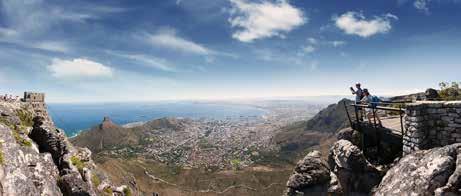
COVER STORY www.facebook.com/@SouthAfricaNationalConventionBureau www.twitter.com/@SA_NCB SANCB #
South Africa, much like the rest of the world, is still finding its way forward through the impacts of the Covid-19 pandemic. Meetings magazine talks to Amanda KotzeNhlapo, the chief convention bureau officer, on the role the business events industry can play in our country’s economic recovery.
“We have an opportunity to introduce South Africa to people who would never have even thought to google the country.”
Amanda Kotze-Nhlapo, SANCB
“We can’t be ignorant to the impact of the crisis but we also see the opportunity, and now, more than ever, the meetings industry needs to recognise that it is part of the solution,” emphasises Amanda.
One thing that has come through very clearly through the pandemic crisis, Amanda says, is that we are social beings who thrive on face-toface engagement.
On meetings taking place virtually, she doesn’t believe this can ever outright replace the value of an in-person experience.
“Many are asking if, going forward, we will now meet virtually. Digital has been a platform for engagement at a time when it was most needed, and while I expect that it will continue enhance meetings, to some extent the human element is lost and they can never provide the same connections and rich experiences as a live event,” she asserts.
BID SUPPORT PROGRAMME (BSP)
The SANCB plans to undertake a full review of South Africa’s BSP to improve the outputs driven by the programme, including its efficiencies and effectiveness in securing business events for the country. The review process will cover all elements of the BSP from leads sourcing process, the evaluation and qualification process, including the procurement and contractual agreement that SAT sign with clients.
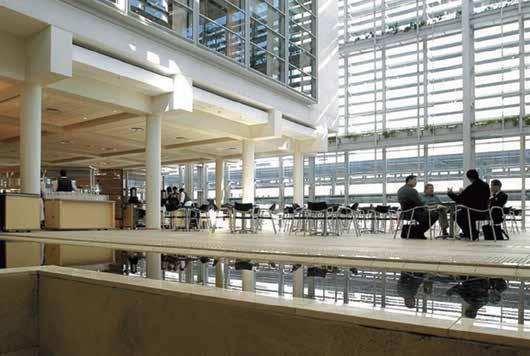
INDUSTRY COMMITMENT
Despite the uncertainty that has seen a slowing or even freezing of many businesses, the SANCB is more committed than ever to implement strategies to bolster industry as a whole so it can weather the storm.
“We are working with government, associations and various venues and suppliers to come together and find the solutions necessary to assist the industry as far as possible during this time,” says Amanda.
The SANCB has, over the years and through its bidding support programme, been pivotal in attracting some of the largest international business events to ever take place on South African soil. The pandemic and ensuing lockdowns have impacted on some of its own events, including Africa’s Travel Indaba, but Amanda feels this is truly a time when the bureau can show its strength and leverage each opportunity.
In addition to its discussions with various players within the MICE industry, the SANCB is in talks with the organisers of the cancelled or postponed events in which it is currently involved to explore the ways such an event can possibly still take place, even digitally.
“What we want to do for those events is still identify how we can do gifting and market the country, so that guests and delegates still know that we are the host, the opportunity exists that a much bigger number of


delegates could virtually experience our country,” Amanda enthuses.
“This gives us an opportunity to look at our own processes in more depth and explore aspects such as how we can improve delegate boosting, how we bring technology to the fore, and what training is needed to do so,” she says.
Whether it be opening addresses being digitally broadcast or implementing delegateboosting initiatives to ensure that no numbers are lost, the SANCB has its work cut out for itself; however, Amanda’s determination is unwavering: “We’ve got a job to do and, when our borders open, we need to be ready.”
www.southafrica.net/gl/en/business


www.theplanner.guru
IN THE FACE OF ADVERSITY, WE WILL RISE

There may be a handful of individuals alive today who can remember the 1918 influenza pandemic that is estimated to have infected close to a quarter of the world’s population and killed some 50 million people.
Little more than a century later, on 17 November 2019, the first case of severe acute respiratory syndrome coronavirus 2, or SARS-CoV-2, is thought to have made itself known. ‘Patient zero’, a 55-year-old man from Wuhan in the Hubei province of China, is
believed to be the very first person to have contracted what scientists say is a zoonoticoriginated virus that is airborne and easily transmitted to and between humans, resulting in the Covid-19 disease.

In the months that have since passed and at the time of going to print, an alarming number of infections were recorded. Over a period of just two months, between 18 March and 19 May this year, global figures have shot up from nearly 250 000 cases confirmed and


more than 10 000 deaths in March, to over 5 million cases and 327 000 deaths in May. While more than a third of all confirmed cases have made a full recovery, the virus has a mortality rate of around 1.4%, and those who are elderly or have various underlying conditions are particularly susceptible.
SA ON LOCKDOWN
The surge in cases has seen many countries put in place rigorous measures to mitigate

6 • MEETINGS l MAY/JUNE 2020 www.theplanner.guru FOCUS: COVID-19
In a matter of months, Covid-19 has wreaked havoc across the world, bringing commerce and whole industries to their knees. Meetings understands what this means for the business events industry and how we can move forward.
“When the time is right, WTTC and the global private sector will be ready to help and support the government and countries to recover.”
Gloria Guevara, president and CEO of WTTC
the contagion of infections and prevent a dizzyingly steep upward incline that completely overwhelms healthcare systems. South Africa has been no exception to this.
On 15 March 2020, President Cyril Ramaphosa declared a national state of
disaster. By then, 61 Covid-19 infections were confirmed, with the first case announced 10 days earlier. Just over a week later, this number rose to 402. This led to stringent measures being put in place to contain the virus in the form of a three-


USEFUL RESOURCES
sacoronavirus.co.za
worldometer.info/coronavirus
theplanner.guru/2020/03/30/covid-19resources-for-the-events-industry saaci.org/coronavirus-update eventscouncil.org/coronavirus ufi.org/industry-resources/coronavirus pcma.org/coronavirus-business-eventsprofessionals-need-to-know-faq uifecc.labour.gov.za/covid19/ufiling.co.za/uif
HOW DO WE COME BACK FROM THIS?
#flattenthecurve has become an important driver in reducing the spread of the virus and eradicating this as far and as fast as possible without overwhelming healthcare systems. It will take time for a recovery and some of the measures
WTTC would like to see in place once the Covid-19 threat is under control include the following:
Improve travel facilitation: Remove or simplify visas wherever possible, reduce the cost, improve processing times where practical, accept other visas when appropriate, and introduce more efficient technologies for seamless and secure travel.

Remove barriers: Ensure that unnecessary barriers are removed or relaxed to alleviate pressure at ports and airports, including the temporarily lifting of the 80-20 slot policy and implement flexible working visas for the industry in some countries with existing limitations, especially in hospitality and tour operation.
Ease fiscal policies: Reduce and remove travellers’ taxes that increase the cost of travel, e.g. Air Passenger Duty and similar airport, port and hospitality taxes around the world.
Introduce incentives: Introduce relief and incentives to support business continuity for companies that have been most negatively impacted by the virus. SMMEs in particular will take longer to recover.


Support destinations: Increase budgets and assign resources for promotion, marketing and product development purposes in destinations when they are ready to welcome visitors again.

www.theplanner.guru MEETINGS l MAY/JUNE 2020 • 7
#FLATTENTHECURVE
“We are confident that government is handling the situation, as well as communication around it, in a responsible and nonalarmist manner.”
Glenton de Kock, CEO of SAACI
Meetings supports responsible eventing and is committed to upholding the measures put in place by government as well as various industry associations and bodies to contain the spread of the novel coronavirus. We want to hear from you on how Covid-19 has affected your business and industry. Please share your stories with us on how you are navigating the effects of the virus as well as any tips, tools and useful resources that may be of interest to our readers and audience, by writing to us on heroes@3smedia.co.za or posting on our social media pages.
Labour and the Unemployment Insurance Fund (UIF) websites (see Useful Resources box on page 7).
SWIFT ACTION
Many local organisers had already heeded the call, with major events such as Africa Travel Week (ATW) and World Travel Market Africa being postponed or outright cancelled, even prior to a state of disaster being declared.
“We have had to respond to the current pandemic and the ongoing conversations with our customers whose welfare is our number one priority. Due to the uncertainty in the region and around the world, with many of our clients facing company travel bans, we have taken the decision to postpone the event to 2021, which was due to take place from 2 to 8 April 2020. Our thoughts are with all those affected in these difficult times,” said Carol Weaving, managing director of Reed Exhibitions Africa – organisers of ATW – in a statement released on 13 March.
FEELING THE PINCH
The full effects of the virus could potentially be devastating, and according to projections from the World Travel & Tourism Council (WTTC), travel could fall by a quarter in 2020, with millions of jobs lost.
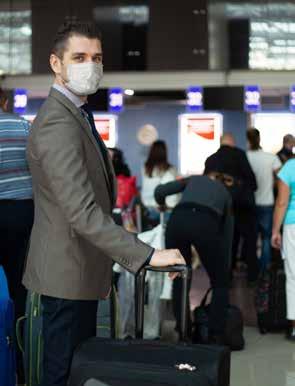



week lockdown that was then extended by a further two weeks.
“If we end the lockdown too soon or too abruptly, we risk a massive and uncontrollable resurgence of the disease. We risk reversing the gains we have made over the last few weeks, and rendering meaningless the great sacrifices that have been made,” said President Ramaphosa during his address to the nation that announced the extension of the lockdown.
While the country has been praised for its proactive approach to put in place extensive precautions preventing the further spread of the virus, it is having heavy implications on business events and industries across the board.

To support businesses as well as the desperate plight of those who are most vulnerable during the lockdown and pandemic, the South African government has put in place a R500 billion stimulus package, which has already started rolling out funds to success applicants. More information on this can be found on the Department of Employment and
“WTTC figures show the stark impact on the travel and tourism sector of the present Covid-19 outbreak, with analysis now suggesting that up to 50 million jobs are at risk in the sector globally. Travel and tourism has the strength to overcome this challenge and will emerge stronger and more robust by taking all necessary measures to tackle Covid-19 and the understandable concern which surrounds it,” says Gloria Guevara, president and CEO of WTTC. Glenton de Kock, CEO of the Southern African Association for the Conference Industry (SAACI), has, meanwhile, encouraged that a responsible course of action be taken by the events industry.
“We do not yet know with any degree of certainty what the total impact will be on our industry or the global economy. That uncertainty is difficult and uncomfortable, and it is playing a large role in influencing decisions that have an impact on all of us – personally and professionally… Sharing knowledge and information in real-time, sharing concerns and potential solutions, as well as accessing the most current and authoritative information from numerous official bodies and agencies will aid us in helping each other and the industry as a whole. Together we will manage our way through this crisis,” emphasised Glenton.
8 • MEETINGS l MAY/JUNE 2020 www.theplanner.guru FOCUS: COVID-19
LET'S HEAR IT!
THE EFFECTS OF COVID-19 ON THE EVENTS INDUSTRY



I could not lead without a strong and committed executive team to support me. Our staff continue to show massive professionalism and commitment to our clients and stakeholders, and we are a very fortunate organisation to have such people working here.
The CTICC is committed to a triple-bottom-line approach, focusing as strongly on its environmental and social impact as it does on profit margins. It is now more important than ever that our focus on people is sharpened. We are working with various government and local organisations in the Western Cape and are stepping up to the plate to assist where we can in the humanitarian impact of the Covid-19 pandemic.
Our strategy is to encourage event organisers to postpone and not cancel events. We are honouring our 2020 rates for existing once-off events that postpone to 2021. We are ensuring that our valued suppliers – most of whom are unable to work during this period – are paid on time and all accounts have been reconciled and are up to date. In our commitment to working with our stakeholders and the relevant authorities to help flatten the curve of Covid-19, the CTICC’s venue facilities are available to be utilised to help mitigate the impact and spread of the virus. This action of being part of the solution will put us in a position to recover more quickly, and get back to the business of hosting events.
Our clients have been very positive and hopeful of the future. This has been heartening and is a great boost to our entire team. The way we do events will undoubtedly change and that is a consideration for venues and planners alike.
In 2019, we established and launched our own events collection, comprising two events, namely: The Gift Fair, a platform for small-scale businesses, and the AllSport Expo, which showcases everything from health, nutrition, medical and wellness products to sporting equipment, activewear, and cutting-edge technology. We will continue to search for new ways to optimise our business by initiating new event experiences that create economic opportunities. Most importantly, we look forward to supporting our staff to re-acclimate from working at home to being back in the office under what is likely to be very different conditions, post lockdown.
“The PCO alliance network member companies have lost in excess of R255 646 415 in business placement to the hospitality industry since February 2020.”

We represent one section of the industry that is suffering dramatically under the Covid-19 restrictions. With the current situation, we are certain that some of our members may well lose their businesses. This will not only result in the closure of their businesses but in retrenching their staff too.
The knock-on effect of loss of business placement to the hospitality industry, in its entirety, will include hotels, function venues, technical equipment suppliers, entertainers, decor companies, speakers and hiring companies, thereby furthering thousands of job losses.
While we are all innovating and turning to whatever means possible to support revenue streams, we urge the events industry to stay home and stay safe!
We have been updating all stakeholders regularly and have made sure that all staff members have access to company communication via email and WhatsApp groups. It’s important that they are made aware of our plans and how we are managing the crisis. We have put a lot of time and effort into investigating the different relief options and applying for some temporary relief for our staff.
During this time, we are also thinking laterally about how we can use our products in new ways, as solutions to some of the challenges of the Covid-19 pandemic.
One thing that has been made clear during this period of isolation and lockdown is the value of face-to-face communication. Nothing beats it. I really believe that conferences and exhibitions will continue to provide value that online communication just can’t. As a result, I see the industry playing an important role in the future, even if it takes a while to pick up again.
“This crisis has highlighted the need for adaptability and resilience in uncertain circumstances.”
“Communication is key.”
Taubie Motlhabane
, CEO,
Cape Town International Convention Centre
Ellen Oosthuizen, chairperson, PCO Alliance Network
www.theplanner.guru MEETINGS l MAY/JUNE 2020 • 9 #COVIDRECOVERY
Justin Hawes, managing director, Scan Display
A few years ago, holding an event with a camera, a microphone and a computer screen might have seemed crazy but, with improved technology and the current health crisis,our view on traditional events has changed. The great news for event hosts and planners is that it is not only still possible to bring people together – we’re able to create completely online events with an almost similar, and in some cases better, experience.
Case in point: in May 2018, millions of investors turned on their computers to watch Warren Buffett’s comments at the Berkshire Hathaway Annual Shareholders meeting. In September 2019, Apple’s iPhone 11 launch event attracted 1.8 million people to its live stream. For event managers, the sudden growth of online events creates new ways of connecting with larger audiences. A recent survey by the US-based business events industry body PCMA found that 67% of respondents will use technology to remotely participate in events in the next three years.
In a world where people can’t or don’t want to travel, hosting an online event may be the way of the future – and could redefine the way we reach our audiences. We think the future holds more of a hybrid approach to events than previously, and it will be a stronger combination of physical and online events. To truly engage audiences, though, you’ll need to deliver a standout online event experience that delivers real value to attendees.


It hit us hard, hit us suddenly and, now that the realities have sunk in, its time to get over the remorse and start planning for life after Covid-19. The events industry will never be the same again and this poses a real challenge to all, especially those who rely heavily on commissions from suppliers.

The first big reactionary change that has occurred is the use of virtual communications. This technique has been around for quite a while but, as humans, we prefer person-to-person interaction, even at the expense of sending delegates half way around the world and setting up in glamourous hotels at enormous expense. This was the way budgets were drafted and everyone made a living from this conference/ events concept.
Will this ever happen again? Yes, but I would suggest to a lesser extent.
Over the next six months of our full or partial lockdown, we will have re-educated our clients to think smarter and use technology better to run events. Once they see the value of this, why would they revert back to the old ways? Some will, and some will mix it up with a bit of both.
Example: we had a conference planned for April with a budget of R3.5 million, which couldn’t be postponed and had to be cancelled. We replaced the full conference with a virtual concept that included a lot of fun and interactive trimmings, at a new cost of R850 000. If the objectives have been met and outcome is satisfactory, what CEO is going to approve a R3.5 million budget next year?
Our challenge now is to embrace the aspects of virtual technology and make sure we can create value through this process. The challenge of earning an income from this virtual business will be tough. It’s not easy, but then what is?

“Start planning for life after Covid-19.”
John Ingram, director, The HiSide Group
“Hosting events online could redefine the future.”
FOCUS: COVID-19 10 • MEETINGS l MAY/JUNE 2020 www.theplanner.guru
Mike
Lysko,
CEO
and founder, Flock Eventing Platform
Cape Town boutique hotel Gorgeous George has opened a conference room space for corporates, organisations or private individuals wanting to host gatherings in a venue with all the modern conveniences of a city facility, plus all the style and beauty of a luxury privately owned art deco/Edwardian-styled residence.
“The beauty of this conference facility is not only its hand-picked design pieces, like the hanging Porky Hefer crocodile swing, and overall playful feel, but also its versatility,” says Peter Kunz, director of Gorgeous George, which is located at the upper end of St George’s Mall in Cape Town’s thriving inner city.

“There’s an element of surprise and intrigue for conference goers and meeting attendees wanting a venue with a generous dose of charm and grace,” says Peter.


VENUE APPEAL
Situated on the first floor of the super-cool designled hotel, the White Room can accommodate up to 120 people, with a wide range of seating options and arrangements, from banquet or boardroom and cinema- or cocktail-style, to U-shaped seating or hollow rectangular. Secure parking is available in two neighbouring buildings.
Chef Guy Bennett caters events with fresh, inspirational dishes. Patron to the hotel’s trendy restaurant Gigi Rooftop, Guy previously wielded his knives at luxury eateries like Grande Provence and the One&Only Hotel. Mouth-watering signature foodie items include: roasted butternut, ginger and coconut soup; slow-roasted beef short rib; mushroom and mozzarella arancini; carrot, honey
A MEETING PLACE OF LIKE MINDS
and ginger pudding with rum and raisin ice cream; and cranberry and pistachio nougat.
HOW GORGEOUS GEORGE IS
Gorgeous George, which opened in April last year, is one of two South African members of the coveted German-headquartered global luxury hotel group Design Hotels.


The hotel was designed by international awardwinning interior designer Tristan du Plessis, who created a concept celebrating contemporary African design and showcasing locally manufactured high-end timeless South African furniture. Lighting and furniture were sourced from David Krynauw, Gregor Jenkin, Studio 19 and Douglas&Co, while murals from artist David Brits are featured in each of the 32 luxe rooms, which range from studios to 1- and 2-bedroom suites. The hotel’s star attraction is its indoor/outdoor rooftop bar and restaurant, Gigi Rooftop, which opens out on to a stunning wood and terracotta pool deck that’s home to an emerald-green glasspanelled swimming pool.
For venue bookings, please visit gorgeousgeorge.co.za or call +27 (0)87 898 6000.
ABOUT GORGEOUS GEORGE
For more information, contact: Craig Dummett +27 (0)21 418 2466 +27 (0)82 072 4103 craig@transformmarketing.co.za
Gorgeous George is the inspiring new spot in the heart of downtown Cape Town where local design and boundary-pushing innovation meet. Gorgeous George is the first in Cape Town to join the Design Hotels stable, a hand-selected collection of 300 privately owned and operated hotels in over 50 countries that represent unique creative expressions with a strong cultural rooting in design, architecture and hospitality.

www.theplanner.guru MEETINGS l MAY/JUNE 2020 • 11
If you are in need of a stunning period-inspired conference room for your inner-city meetings and gatherings, look no further than Gorgeous George’s White Room conference facility.
VENUE
Word on the ground
Meetings hears from various tour operators in Mauritius on how their local MICE and tourism industry is faring against Covid-19.

THE HOLIDAY FACTORY WORLD LEISURE HOLIDAYS MAURITIUS INCENTIVE CONNECTION (MIC)


From our discussions with the MICE teams in Mauritius, they are proactively discussing ideas on how to have post-Covid-19 events. While none of these plans are 100% finalised, as there are many stakeholders involved, we are certain that Mauritius, with the luxury of large outdoor spaces, will be in a better position to be creative and innovative, and come up with actionable, socially distanced conference and incentive ideas.
No hotel or incentive company has any firm ideas in place, as the industry needs guidance on the future of travel from the World Health Organization and governments around the world. We might not know what a meeting or conference will look like in the future but what we do know is that people love to travel; they have been travelling for centuries and will continue to do so, so demand will be there.
We were already seeing a trend prior to Covid-19 toward a few smaller incentives rather than one large one or companies offering individual travel incentives to staff, allowing them to pick their own travel dates rather than a group incentive.
In terms of MICE in Mauritius post Covid-19, unfortunately we don’t have much positive input, as we anticipate recovery in this segment to happen last – i.e. at least 6 to 12 months after the borders reopen. Businesses across all industries have been negatively impacted by Covid-19; after Covid-19, they are going to be challenged financially and, therefore, unfortunately one of the major line items they will look at cutting will be conferences, events and incentive trips.
In terms of hotels in Mauritius, certainly all the hotels have taken the necessary sanitary measures.


At the Sun properties as an example (Long Beach, Sugar Beach, Ambre and La Pirogue), to ensure the safety of guests and staff, social distancing has been easily implemented in all aspects, be it the beach experience, restaurant seating, conferencing and even room allocations – i.e. in low seasons where occupancies are not that high, rooms will be allocated with social distancing in mind.
The worldwide spread of Covid-19 has brought the whole tourism industry to a standstill. The MICE industry worldwide is very worried about the future, but we believe that MICE in Mauritius will continue to flourish, especially from South Africa once the virus is under control and borders can reopen.

However, in Mauritius, we will have to implement very innovative health and sanitary policies and measures to give our visitors the confidence that it will be safe to visit the destination. All players in the industry will have to comply with such policies and be certified. The members of MIC will be at the forefront of such efforts.


From the onset of the Covid-19 crisis, it was clear that our ability to receive tourists or MICE groups would be severely curtailed and will remain so for some time. Its impact on the travel and tourism industry worldwide is dramatic. We are analysing how travel behaviour will change but this will depend on the restrictions imposed once borders are opened and flights start to operate. These could include limited seats on flights for social distancing, which could result in a 50% increase in air tickets, a compulsory 14-day quarantine period on arrival, and social distancing in coaches and boats. We are not even sure when, or indeed if, group events will be allowed to take place.
There are more questions than answers right now. We await the post-Covid-19 plans from all our major source markets to evaluate the impact.
Since 31 May, all services have been allowed to operate but all flights are suspended until 1 July. However, we do not foresee any MICE clients before September or October this year at the earliest, depending on the evolution of the pandemic worldwide.
Many things are likely to change but, fundamentally, humans are meant to interact – and we believe this inherent drive will also help accelerate a return to a new normal.

DESTINATION
Flora Fubbs, General Manager: Product, Marketing & Operations
Ramesh Jeenarain, Managing Director
Stephane Louise, Business Unit Manager: MICE, Connections DMC –Mauritius & Réunion
12 • MEETINGS l MAY/JUNE 2020
BEACHCOMBER TOURS


We have so many MICE bookings in the next 12 months and it seems that these bookings will continue to come in. The spread of Covid-19 in Mauritius has been minimal. All our hotels are taking extra precautions for clients staying at the hotels and are putting in place our ‘safe place’ label.


It is time to move on and be positive about travel. Air Mauritius cleanses the air in the plane frequently throughout a flight, so we feel positive that many precautions are in place – and hopefully the MICE and other clients will feel safe with the many usual precautions.
We are hoping everything gets back to normal soon around the world and that South Africans can get back to their favourite holiday destination.

THOMPSONS HOLIDAYS
In response to the post-Covid-19 situation, hotels and other tourism operators in Mauritius have been working on rigorous hygiene protocols and standards to better welcome visitors and serve the MICE sector going forward. Guest health and safety remains the highest concern and priority. Standard operating procedures have been amended to include a new health safety regime. Operators comply with all local regulations and directives from the government and abide by the recommendations of our local health authorities. The most immediate visible change will be the strict cleaning protocols and precautionary measures from arrival throughout a guest’s stay at hotels and on excursions. The operators will be introducing new technologies to completely eliminate any risk.
Thompsons Mauritius will be fully operational in line with the government’s Covid-19 directives to ensure our MICE clients will enjoy the full Mauritius experience within the stipulated regulations.
All information supplied by the Mauritius Tourism Promotion Authority.




#MAURITIUS
Terry Munro, Managing Director
Joanne Adolphe, CEO
AN UNRIVALLED
Experience extraordinary and discover why the Cape Town International Convention Centre is a preferred venue for global events.
The Cape Town International Convention Centre (CTICC) is situated on the city’s Foreshore, at the edge of a working harbour. Within walking distance of major hotels and just 15 minutes from Cape Town International Airport, the CTICC is easily accessible and located close to Cape Town’s central business and entertainment hubs – including attractions such as the
CHOICE
Victoria & Alfred Waterfront, Table Mountain and world-class restaurants.
The purpose-built complex consists of CTICC 1 and CTICC 2, which are linked by the Skybridge to facilitate easy flow between the two. Together, they boast a floor space of 140 855 m2. Events such as AfricaCom have been hosted across both buildings, drawing more than 15 000 attendees.
The CTICC is a preferred venue for many new and returning clients. During the 2018/19 financial year, the centre welcomed almost half a million attendees from various countries, including but not limited to Australia, Belgium, Botswana, the Cayman Islands, China, Germany, Ivory Coast, Kenya, Mauritius, the Netherlands, Saudi Arabia, Senegal, Switzerland, the UK and USA.

14 • MEETINGS l MAY/JUNE 2020 www.theplanner.guru
VENUE PROFILE
VERSATILITY AND FLEXIBILITY
Whether you’re planning a large international trade fair or a small half-day conference, the CTICC’s unique and expansive facilities provide unrivalled flexibility. Our venues and meeting rooms offer beautiful views of the city, floor-to-ceiling windows, natural light-filled conservatories, incredible mountain-view roof terraces, a wide selection of meeting pods and suites, a divisible 1 876 m2 ballroom, two raked auditoria, exhibition halls, restaurants and coffee shops.
Combined, exhibition halls 1 to 4 in CTICC 1 boast 11 399 m2 of column-free space, while in CTICC 2, halls 5 to 7 offer 4 937 m2, and halls 8 to 10 showcase 4 901 m2 of prime exhibition space, respectively. Our large marshalling yards make set-up and breakdown a breeze.

STATE-OF-THE-ART OFFERING
As a state-of-the-art conference facility, the CTICC continually upgrades its technological infrastructure, deploying the latest hardware and related software to ensure world-class information and communications technology.
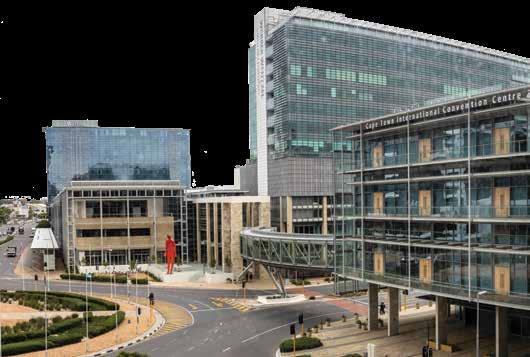
To cater for the high volumes of delegates and attendees, the CTICC offers leading connectivity, including 1 792 network points with 100 km of CAT 6 network cabling and an extensive fibre-optic network, made up of 1 496 fibre-optic points and 28 km of fibre. Wi-Fi is enabled through a combination of high- and standard-density points. With an internet uplink of 10 GB, it can support 15 000 connections in CTICC 2 alone.
Both CTICC 1 and CTICC 2 have a Building Management System that is used to automate control of services. A typical example would be scheduling the air conditioning to automatically power on and off.

Our 84% customer satisfaction rating in the past financial year is an indication of our commitment to great and professional service. Working together with clients, our teams aim to deliver a seamless experience, coordinating everything from entertainment, food and beverage services, to the logistics of
parking, payment systems, set-up, as well as post-event care.
SUSTAINABILITY
Clients are offered the opportunity to ‘green’ their events and encouraged to complete the Event Greening Checklist early on in the planning process. The centre’s sustainability officer can help organisers plan a sustainable function and offer further advice based on extensive experience in this regard. One of the options offered is waterneutral events, thanks to the centre’s new reverse osmosis plant.
The CTICC is committed to connecting people and helping to grow the economy, while ensuring that it continues to observe responsible and sustainable business practices.
Discover the CTICC and experience extraordinary!
For more information, please visit cticc.co.za

www.theplanner.guru MEETINGS l MAY/JUNE 2020 • 15
#CTICC
Brandex, like much of the world, is feeling the impact of what was possibly the most significant event we have ever seen. Being audiovisual specialists primarily servicing the events industry, it was inevitable that we would see a dip in our own business, with major conferences and shows being postponed for the foreseeable future, together with a number of other measures to bring the novel coronavirus pandemic under control.
The impact the lockdown measures had on the industry has been felt across the board but if the virus has shown us anything, it is that this is something that affects the entire









industry. And while we hope that everyone can ‘survive’ this, now is not a time for panic.
UNITED WE STAND
As a business, it is time to be proactive and review our allocation of resources, rather than cutting them completely. We have an opportunity now to take the time to make calculated and conscious decisions that are in the best interests of our survival and, during this time, it is more important than ever to also look after our suppliers, as they play a critical role in our business.

It has been truly encouraging and heartwarming to see how everybody is joining forces to support one another. We have endeavoured to be active members of our industry; Gabi personally serves on the board of directors for the Exhibition and Event Association of Southern Africa (exsa.co.za, while Brandex is also a member of the Association of African Exhibition Organisers (aaxo.co.za). In addition to being incredibly supportive towards the industry at all levels, the industry associations are a wealth of information in terms of the current situation in which we find ourselves, as well as on a number of other matters.
The value of face-to-face interaction will never go away; however, I firmly believe that the decline in numbers of delegates and major gatherings will be a contributing factor towards what is presently a rapidly evolving landscape. It will take time before events will be back to the standard we are used to and, even then, we don’t believe that these will ever be quite the same.
Following the pandemic, we have seen a shift towards cleanliness and hygiene. And after seeing just how quickly and readily the virus was able to spread before it became a pandemic, there will definitely be more attention given towards maintaining social distancing and ensuring that we work in more sterile conditions.
Going forward, Brandex may have to revise its model so that its operation is more relevant to the context of where we are currently and to safeguard our commitment – the focus of which has always been towards our clients. And once the sun sets on this period, we will be ready to tackle whatever comes our way. We invite the industry to join us in doing the same because it is more important than ever that we set our sights on the future.



BEST PRACTICE
Living through an event on the scale of a global pandemic has shown us just how resilient the meetings industry is, say Gabi Babinszky and Jack Smit , directors at Brandex.
5 MINUTES WITH…
THE SANCB
ZINHLE NZAMA

Acting GM: Exhibitions & Strategic Platforms
Basic right of free movement has been turned into a privilege worldwide due to the Covid-19 pandemic. Cancellations have resulted in potential business deals being hugely impacted and our own Africa Travel Indaba 2020 has not been exempt from this.
I am currently trying ever so diligently to adjust to working from home while juggling online schooling for the kids, which, I have to admit, has been quite a challenge.
With this said, I remain hopeful that we will emerge stronger and victorious post the pandemic.

MIC Sales Officer

Covid-19 has had an overwhelming impact on us all, by literally bringing the world to a complete standstill, and it may be the closest we will ever get to stopping the earth from spinning on its axis!
Personally, this pandemic has reminded me to be mindful of the basics. It has intensified my feelings of gratitude for the people in my life, the blessings of good health, my job, access to food, safe drinking water and healthcare, should I need it.
Professionally, the searing impact on the meetings industry forces us to stop ‘thinking out of the box’ and start to recreate the box and our way of thinking. We now have the opportunity to use lessons from the past as a catalyst in forging the way forward, by bringing the world together using virtual platforms.
MANGOPE Intern



The novel coronavirus has created a lot of fear and anxiety. Since the lockdown, I have been consuming a lot of information about the virus on social media. The lack of human connection and spending time alone can lead to negative feelings and thoughts.

Professionally, the situation has a negative effect on one’s motivation but it has highlighted the importance of self-care, which needs to become part of a daily routine.
MIC Sales Manager


Covid-19 has had a devastating effect on the world; however, it has made me more cognisant of my privilege to access clean water and sanitation – something many people live without. Social distancing has also been challenging, as it has limited my interaction with family.
Professionally, the pandemic has created a great deal of uncertainty in the business events industry and the continued ambiguity adds to the complexity of recovery.



Now more than ever, the use of technological resources has become imperative. A crisis of this nature is likely to make surviving businesses stronger.
FIKISWA MGOLOMBANE Hosted Buyer Programme Officer
The Covid-19 virus has been a learning curve – that’s for sure! Life as we know it professionally will never be the same. For years, we were told the nature of work is changing and one must be prepared, and the pandemic has really forced us to turn to new ways of working.
This has certainly made me realise that whatever life throws at you, there will always be a way to overcome the mishaps.
MPHAGO Business Unit Coordinator
With this current situation, everything has changed drastically – going from being an adventurous outdoor lover to total lockdown and isolation. Working from home has also proved to be more demanding than physically being in the office.
While travel is restricted, we should focus more on the enhancement of operational efficiencies to enable us to still position our industry to compete in the post-Covid-19 market. One of the biggest lessons this pandemic has taught me is that health is our greatest wealth.
SWAZI DLAMINI Hosted Buyer Programme Officer



The novel coronavirus has had a devastating impact on the tourism industry around the world – forcing cancellations and suspensions of some of society’s biggest events.
Lessons we can take away from this is that the world is changing, new ways of doing things are emerging, and standard operating practices must be elevated to a new level.
www.theplanner.guru MEETINGS l MAY/JUNE 2020 • 17
We talk to the team at the South Africa National Convention Bureau on how the novel coronavirus pandemic has impacted them both personally and professionally, and what lessons we hopefully can take away from this.
VERUSCHKA RUGBEER
TSHEPO MASEKO
ONALENNA
MPHO
5 MINS WITH…
There has been a growing trend over the years for staff to carry out their day-to-day work remotely, which has seen a drastic increase during the Covid-19 lockdown. Meetings explores the ins and outs of managing a remote team.


As non-essential businesses were instructed to send staff home during the recent lockdown, many were faced with the challenge of very quickly having to set up their teams to effectively carry out operations remotely. While this may not be applicable to all scenarios, it shows that
KEEP BUSINESS TICKING OVER, REMOTELY
there is already a basis that provides employers and managers with strong motivation to have their teams based more remotely.

In an experiment involving a Chinese call centre that was conducted over five years ago, some staff were asked to work from home for nine months. According to the Harvard Business Review, in that time, the productivity of those working from home increased by 13% compared to the control group at the office. In 2014, the PGi report highlighted that 82% of staff who work remotely noted lower levels of stress.
Three years ago, Megan Berry, VP for Octane AI, a marketing agency focused on the digital space, wrote: “Work-from-home policies and
remote workers are becoming more and more common in tech. The next wave of workplace flexibility is all-remote companies where there is no headquarters or home office. If all we need is a laptop and internet, why should it matter if we are physically in an office?”
For some, working from home or remotely from the office is easier said than done –technology is just one of the struggles many face working outside of an office environment, in addition to establishing a balanced and productive work-life routine. For others, it is a natural transition – in the US, it is estimated that close to a quarter of its earning population works from home.
18 • MEETINGS l MAY/JUNE 2020
REMOTE TEAMS
SUPPORT FROM THE TOP DOWN
Deeper research on emotional intelligence and the effects of emotional contagion indicate that, during times of crisis, employees will base their own responses on cues from their managers. If a manager exhibits feelings of anxiety and despair, this will have what emotional intelligence guru Daniel Goleman refers to as a ‘trickle-down’ effect on employees. An effective manager who demonstrates strong leadership will have a two-pronged approach that acknowledges and is empathetic towards the stress that employees may be enduring, but also builds confidence in their teams by using affirming phrases such as “I know this is tough, but we can handle it,” or “Let’s look at ways to use our strengths.” With the right kind of support, employees will be more motivated to take up challenges with a clear sense of focus and purpose.


THE STATE OF REMOTE WORK

With the rapidly expanding digital advancements that are becoming more widely available and adopted, it has become entirely possible for entire teams to be remotely based and operations to carry on as they would from the office.
CLOCKING IN
Over the past five years, there has been a growing trend towards more companies allowing for greater flexibility when it comes to staff working remotely, where productivity is based on performance and not the number of hours spent at the office.
Working from home also eliminates time spent commuting to the office, which, for some, can mean anything from one to three hours spent each day in their journeys between home and work.


Jason Fried, the author of Remote: Office Not Required, says in his 2013 book: “The technology is here; it’s never been easier to communicate and collaborate with people anywhere, any time.”
Seven years later, there are a multitude of online applications that remote workers can make use of that are increasing in popularity due to their ability to connect and facilitate communication among teams as well as their user-friendliness – from project boards to file sharing and virtual meetings, enhanced productivity for your remotely based team is only a few clicks away.
www.theplanner.guru MEETINGS l MAY/JUNE 2020 • 19 #NOOFFICEREQUIRED
“Commuting is associated with an increased risk of obesity, insomnia, stress, neck and back pain, high blood pressure, and other stress-related ills such as heart attacks and depression, and even divorce.” Jason Fried, author of Remote: Office Not Required
TIPS AND TOOLS FOR MANAGING REMOTE TEAMS

 By Barbara Larson, Susan Vroman & Erin Makarius originally for Harvard Business Review
By Barbara Larson, Susan Vroman & Erin Makarius originally for Harvard Business Review

Daily check-ins: Many successful remote managers establish a daily call with their remote employees. This could take the form of a series of one-on-one calls, if your employees work more independently from each other, or a team call, if their work is highly collaborative. The important feature is that the calls are regular and predictable, and that they are a forum in which employees know that they can consult with you, and that their concerns and questions will be heard.
Provide several different communication technology options: Email alone is insufficient. Remote workers benefit from having a ‘richer’ technology, such as video conferencing, that gives participants many of the visual cues that they would have if they were face-to-face. Video conferencing has many advantages, especially for smaller groups: visual cues allow for increased ‘mutual knowledge’ about co-workers and also help reduce the sense of isolation among teams.
Video is also particularly useful for complex or sensitive conversations, as it feels more personal than written or audio-only communication. There are other circumstances when quick collaboration is more important than visual detail. For these situations, provide mobileenabled individual messaging functionality – Slack, Zoom, Microsoft Teams, etc. can be used for simpler, less formal conversations, as well as time-sensitive communication.
Establish ‘rules of engagement’: Remote work becomes more efficient and satisfying when managers set expectations for the frequency, means, and ideal timing of communication for their teams. We recommend that managers establish these ‘rules of engagement’ with employees as soon as possible, ideally during the first online check-in meeti ng. While some choices about specific expectations may be better than othe rs, the most important factor is that all employees share the same set of expectations for communication.
Provide opportunities for remote social interaction: One of the most essential steps a manager can take is to structure ways for employees to interact socially – that is, have informal conversations about non-work topics while working remotely. This is true for all remote workers, but particularly so for workers who have been abruptly transitioned out of the office.


Offer encouragement and emotional support: Especially in the context of an sudden shift to remote work, it is important for managers to acknowledge stress, listen to employees’ anxieties and concerns, and empathise with their struggles. If a newly remote employee is clearly struggling but not communicating stress or anxiety, ask them how they’re doing. Even a general question – such as “How is this remote work situation working out for you so far?” – can elicit important information that you might not otherwise hear. Once you ask the question, be sure to listen carefully to the response, and brie fly restate it back to the employee, to ensure that you understood correctly. Let the employee’s stress or concerns, rather than your own, be the focus of this conversation.


20 • MEETINGS l MAY/JUNE 2020 www.theplanner.guru
REMOTE TEAMS
Up to us
Covid-19, SARS-CoV-2, coronavirus –whatever the name used for the viral pandemic we are currently facing, it has become synonymous with far-reaching consequences that are impossible to ignore as they have affected every single one of us. We cannot dispute that the measures that have been put in place are crucial to limiting the spread of the virus. With a lockdown that is gradually being phased out to lower levels based on careful risk assessments intended to prioritise the safety of our nation’s citizens, each of us has a key role to play in how we manage the effects of the pandemic.
DOWN BUT NOT OUT
Some industries have been much harder hit than others; the healthcare/medical sector is currently inundated but with no social gatherings permitted and only essential travel allowed within each province, business events and tourism have suffered a heavy blow, with the dip in activity resulting in a major loss in revenues. From organisers to service providers, the knock-on effects have now impacted the entire value chain, and this is likely to be long-lasting. From Downings’ perspective, we are offering different value propositions to alternative market segments, where our products and services are best suited to meet the needs of customers and deal with the challenges faced by our industry
affiliates and partners. For operations that are primarily driven by events or rely on large gatherings of people for their day-to-day business, the current outlook is uncertain; however, we remain positive and committed to ensuring the availability of our resources.


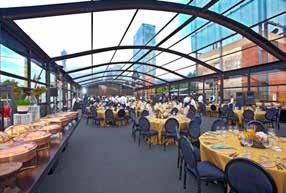
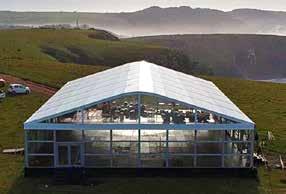


IN THIS TOGETHER
What we are seeing out of Covid-19 is just how much we are all part of an intricate ecosystem, and we are all in this together. There have already been quite a few casualties and, right now, it is more important than ever that we deal with the virus as proactively and as swiftly as possible to prevent more draconian measures needing to be put in place. This is also where each of us needs to recognise that it is within our power to make a difference; at Downings, we are more committed than ever to our charitable causes and it has been encouraging to be part of the efforts being made to support local communities as far as possible. It is here where we know we are making a real, tangible contribution in the fight against Covid-19 (see page 12 of Meetings Lockdown Heroes Special Edition). For others, simply staying at home is what will save lives, as it limits the number of opportunities that the virus has to be transmitted to other people.
Covid-19 has and will continue to test our mettle like nothing we’ve ever faced before – even though its impact might be felt for a long time after it passes, it will not be permanent, and we will emerge from this stronger and more resilient.
In the interim, do what you can to survive, helping others to do the same, and be ready for action once the industry and world recover.
CAPE TOWN: +27 (0)21 851 8844 | cpt@downings.co.za JOHANNESBURG: +27 (0)11 942 9530 | jhb@downings.co.za PORT ELIZABETH: +27 (0)41 373 2524 | pe@downings.co.za downingsmarquee.co.za 20 YEARS OF EXCELLENCE downings.marquee BEST PRACTICE
The Covid-19 pandemic has seen the events industry take a severe hit but if we are united in our efforts, we can weather the storm, writes Richard Downing , CEO of Downings Marquee Rentals.
downings-marquee-rentals downings_marquee @Downings_Marq
MANAGING YOUR MENTAL HEALTH
Michelle Nortje is a clinical psychologist with a private practice in Johannesburg. Pippa Naude speaks to her on proactively managing your mental health during lockdown in the wake of Covid-19.
The current global pandemic has created multiple layers of consequences. There are huge individual and global health, financial, economic, systemic, and political repercussions that we will all be grappling with in the months to come. There have been tremendous changes to how our societies function and a loss of normalcy.
A strong emotional element accompanies these adjustments. Alongside a biological epidemic is also the possibility of an epidemic of fear. “Anxieties, worries, irrationality, fears, uncertainties, a sense of collective loss or grief, confusion, powerlessness, panic, a loss of safety and depression are expected experiences of many in facing the possibly devastating after-effects of Covid-19. These can be incredibly overwhelming experiences for people, both as individuals and as members of larger communities and countries,” explains Michelle Nortje, a Johannesburg-based clinical psychologist. There are ways, however, in which we can help ourselves, our families and our communities to understand and manage our mental health in the present and over the next few months. It is important to prioritise and protect our mental health during such unprecedented times. Michelle provides us with a few ways to assist in curbing your anxiety during the Covid-19 pandemic:
1DON’T AVOID YOUR FEELINGS
If we can name it, we are more able to

manage it. Labelling and acknowledging our emotional states can allow us to feel more in control of our experiences, rather than feeling like our emotions are controlling us. Try to take some time each day to notice how you are feeling and give the feeling a name. By doing so, we can allow the feeling to be acknowledged and pass on. Bottling up feelings has the opposite effect and can lead to feeling emotionally dysregulated or feelings spilling out on to other people around us. For example, denial is something we may all have experienced lately – this virus won’t affect us directly. Acknowledging this way of thinking, a way to protect our minds from a harsh reality,
can help lead us to a more accepting stance – this is really happening and what can I do to help manage this. There is a feeling of control in acceptance – I can keep safe by following the lockdown rules, washing my hands regularly and working remotely.
2
SELF-CARE
We need to take extra care to build up our emotional and psychological strengths and resources at times of worry. Filling up our cups means we can have additional emotional resources available to stay calm, communicate effectively and comfort others.

Self-care is different for different people. It may mean taking some time to focus on your hobbies (painting, reading or baking), or it may be doing some exercise (which can still happen at home), or having a conversation with a trusted friend.
3 MAINTAIN YOUR SUPPORT STRUCTURES
Although we may not be able to meet with family and friends in person, we can continue to draw strength from our connections using online facilities. You can arrange online coffee dates with friends or have a video call with a family member. Staying connected to others is an important way to reduce feelings of isolation and loneliness.
4
THERAPY
Many psychologists are continuing to offer their
WELL-BEING
22 • MEETINGS l MAY/JUNE 2020 www.theplanner.guru
services using online methods. This allows us to continue to receive much-needed support and guidance while remaining healthy and socially responsible.

5 TAKE CONTROL OF THOSE THINGS YOU CAN
In the current situation, there are many external events that are far beyond our control, like the exchange rate and whether your neighbour is following social distancing. Worrying about these factors outside our realm of control can heighten our anxiety. Instead, we can try to take control of smaller things within our capacity and space. For example, you can take control of washing your hands more regularly, writing up your shopping list or creating a daily routine for the lockdown period.
6
SET UP A NEW ROUTINE AND SCHEDULE
Feeling in control of one’s daily actions can build up a stronger sense of empowerment over time. This can be done by creating a new routine rather than being taken up by the swirls of chaos around us. For example, it is still important to go to bed and wake up at the same time. Sleep routines can easily be thrown out amid anxious feelings, and poor-quality sleep exacerbates a low or anxious mood.
7
pages of a book; make the bed; change that lightbulb you’ve been meaning to change for a while…
8 MINDFULNESS
Mindfulness is a helpful psychological tool to allow us to remain present in the here and now, without letting our minds get caught up in catastrophic or worst-casescenario thinking about a future we cannot yet know about. This can be very powerful in lessening the overwhelming nature of our uncertainties of the future. We can then replace worst-case scenarios with those that are more realistic.
One way to practise mindfulness each day or when anxieties seem more intense is to focus on our five senses. Notice and describe in detail to yourself the things in your environment that you can see, smell, taste, touch and hear. When focusing on these things, we are replacing those worstcase images that stir up anxiety. There are several mindfulness and meditation apps available such as Headspace, Calm, or Stop, Breathe & Think.
9
SET A DAILY GOAL FOR YOURSELF
During lockdown, one can begin to feel bored, stuck or restless. Try to focus on one thing each day to feel a sense of achievement, accomplishment and movement. For example: try out a new recipe; research a new hobby; read a few
LIMIT SOCIAL MEDIA AND NEWS ACCESS
Try to limit the amount of news you are receiving on social media or television. There is a lot of fake news circulating about the pandemic that only serves to worsen people’s experiences of hysteria, suspicion and panic. Instead, focus on only getting updates from reputable and scientific sources, such as the WHO, and fact-checking other information that may be shared with you. This allows us to make more informed decisions, and not decisions based on fear and disinformation. It can be easy to take on the dysregulation of
others around us (people panic-buying and leaving grocery shelves depleted and bare) and we need to be conscious of establishing boundaries to know the difference between our own feelings and those of others.
10 HAVE FUN
Amid all the anxiety-provoking news, changes and lockdown protocols, we also need to create some balance. We can still try to make time for fun, light-hearted activities. Play board games with your children, spend time soaking up the autumn sunlight, build a puzzle.
11 FEEL GRATEFUL
Many of the things on this list of tips make an assumption about a level of access to technology, comforts and a home to retreat to in such a time of unsafety and concerns about our health. Many people in our communities do not have running water to wash their hands and sanitise; they do not have enough money to stock up on food; they do not have spare change to buy art supplies to stay busy. Keep in mind that, sometimes, helping others can create feelings of empathy, connection and care. A positive psychology tool we can use to help manage our worries is a gratitude journal. Each day, write down five things to be grateful for – taking a short walk, hearing the birds continue to chirp, watching a sun set each evening, having electricity to cook a meal, being able to call a friend. Try this out with family and friends. It can help us realise those things around us and within us that can help us to weather this storm. Compassion, kindness, appreciation, patience and empathy can be very healing in the face of aggression, hoarding and panic.
www.theplanner.guru MEETINGS l MAY/JUNE 2020 • 23
NEW
CALL-TO-ACTION
a crucial step in planning. At this point, you’ll want to define why you’re putting together this event, and what you’re hoping to achieve. What will your brand and attendees get out of the experience? What are your marketing and financial goals? During this process, you’ll also want to define your target audience clearly, since this is a stepping stone for many aspects of planning and execution. The better you can identify the personas, the more you can cater your virtual event to them.
DEVELOP YOUR VIRTUAL EVENT CONCEPT
Take everything you’ve done so far and make it into something more tangible.
CREATE A BUDGET
A budget will help you clearly understand where to allocate money. It can help you decide where to splurge and where you may need to cut back when creating your virtual event. This should include the income, the expenses and the estimated versus actual expenses. Make sure you keep the budget updated and create an emergency fund –you want to be proactive in case last-minute expenses pop up.
Ponder this – in a world where technology develops and improves at an impressive speed, it’s our job as event professionals to keep up with the motions. So why not be the one who takes the first step into more engaging, sustainable events that can connect thousands of people from around the world at lower costs and increased flexibility?
ESTABLISH VIRTUAL EVENT GOALS AND OBJECTIVES
Just like with an in-person event, defining the goals and objectives of your virtual event is
Developing the concept of your event is extra important when planning a virtual experience. This will help you make the right decisions, especially in a field that is relatively new to event planners. Start with ideation, and let your mind run free. Picture the theme you’ll want your virtual event to follow, and make sure you stand out! Learn from what others have been doing in the virtual event sphere – what did they do right and wrong? How can you draw inspiration from them? Market research can be a powerful tool here. A great way to give a visual representation to your event is to put together a vision board.
VIRTUAL EVENT LOGISTICS
Your virtual event also needs a date and time, as well as backup dates. When it comes to virtual events, you’re no longer just competing with other events taking place at the same time, on the same day. You’re competing with, essentially, everything –so consider what else that is going on and whether it’s a good idea to hold your virtual event on that date.

CONCEPTUALISE THE FORMAT OF YOUR VIRTUAL EVENT
Perhaps one of the biggest mindset shifts
24 • MEETINGS l MAY/JUNE 2020 www.theplanner.guru VIRTUAL EVENTS
Virtual event planning could be the next big thing in the industry but is unexplored territory for many. In a special instalment from Endless Events, we take a look at how to plan and prepare mind-blowing virtual events.
you have to make is considering the format you want for your virtual event. Do you just want a speaker talking to the audience? Do you want the audience to engage? Do you want attendees to be able to go from a virtual room to another? These are all things to consider. Webinars, live streams, web chats, panels and forums – anything is a possibility. But which one fits the goals of your event?
DETERMINE YOUR AV AND PRODUCTION NEEDS
You still want to put on a show your attendees will remember for years to come, and virtual events have their own set of audiovisual and production needs that must be met. This is a good time to source a virtual event production company that is already familiar with the game and can walk you through the details. Once you have them booked, you’ll want to connect them with the talent, learn the lingo, and ask for a quote walkthrough. Go about this exactly the same way you would with an AV company for an in-person event. Be educated, ask questions, and look for the best possible deal.
BE MINDFUL OF YOUR TECHNOLOGY
In virtual event planning, more than ever, technology takes the driver’s seat. This is where a big chunk of your planning will be spent, so make sure you have the right company by your side. Venue restrictions, rigging and so on won’t be the things you’ll have to worry about but rather things like platform integrations, cybersecurity, platform features, your event app and chatbots.
BE PROACTIVE ABOUT SPEAKERS AND CONTENT
The content will be one of the stars of your virtual event, so be proactive about this! Ask your content creators for credentials, previous virtual event experience, and review their portfolios. If you think you found the right match, then it’s time to connect them to the production company.
The speakers are one of the most important parts of the show. And because you’re changing things up and going virtual, you will 100% want to ask them about previous virtual event experience. If it’s clear that they don’t know how to keep the audience engaged and only thrive in traditional settings, it’s best to decide on another person. You’ll also want to choose those who align with the purpose of your event and will add value to the experience as a whole.
FIND ENTERTAINMENT
Having entertainment in virtual events is still possible – YouTube is ripe with DJs, bands and artists live-streaming for the entire world to see and enjoy together, even if they’re continents apart. Just because the audience isn’t physically there doesn’t mean they won’t enjoy it. Here, you’ll want to keep the audience in mind when choosing the entertainment.

VIRTUAL PLANNING TIMELINE
2 MONTHS OUT PROMOTE YOUR VIRTUAL EVENT

Create hype: ask your speakers and influencers to post on their social channels about your event and let them promote your event and themselves by sharing what interesting topics they will be discussing. Also, send out all press releases to media outlets to spread awareness of your event.
1 MONTH OUT This is the stage in virtual event planning when you’ll want to start tying all the loose ends. Contact all the necessary people to confirm times and find out if there are any l astminute questions, concerns or needs. This is also the time to request payments, so that all pre-event bills are done and dealt with.
Four weeks before the big day, designate a way to communicate virtually. Whether it’s a private chat room or a specific tool for your team, they need to be in constant contact with each other, particularly during a remote event.
DAY OF
The day of your virtual event is finally here! So, make sure you have fun and have a comfortable space around you. Yes, it’s remote, but you won’t want the event to take place while you have a pile of socks on your desk or space! Make sure the atmosphere is pleasant and comfortable for you.
Know and agree on who is responsible for what, and consistently check in with your partnerships. Use your event app to crowdsource and check your event’s hashtag for immediate attendee feedback. This allows you to make instant programme changes should you need to. And, last but not least, collect feedback from your attendees. The easiest way to do this is through your event app, but you can also administer online surveys. Give them some sort of incentive to fill them out!
POST EVENT
Have a post-event meeting – the sooner, the better! Debrief with your entire staff, share all the data, and get all of the problems and successes out in the open to discuss. Review your event goals, whether you achieved them, and if not, document why. Make sure you keep notes of this meeting for future planning.

Go over the budget by reviewing budget versus actual expenditures to calculate your return on investment. This is a good time to tie up postevent loose ends. Be sure to send sponsors the data from your event, store away the feedback and data you have collected, and use it to decide what worked and what needs changing for your next event. Finally, send thankyou notes to sponsors, speakers, donors, media and partners.
For more tips, tools and resources, visit helloendless.com
www.theplanner.guru MEETINGS l MAY/JUNE 2020 • 25
#EVENTS2.0
VIRTUAL ATTENDEE


On 7 April, Meetings attended the Hospitality Tomorrow virtual event. We deliver the highlights, lowlights, ins and outs of attending a unique virtual event experience.


The year 2020 will go down in history as one in which the world was forever changed. By April, many countries had responded to the novel coronavirus pandemic by limiting the movement of their citizens, with all but essential workers and frontline staff retreating indoors. In South Africa, a national state of disaster was declared within a matter of weeks following the confirmation of the first local case of

“Every person has an AQ, a learned response to adversity, which is also often referred to as resilience or grit,” according to Dr Paul Stoltz, who spoke during the Hospitality Tomorrow event on 7 April.
1. CONTROL: To what extent can you influence whatever happens next?

What facets of the situation are ones that you can influence, so that you can improve your chances to come out of this better?
2. OWNERSHIP: How likely are you to step up to do anything to improve the situation? Where can you step up and start to take action?
3. REACH: How far will it reach into and affect everything else?

Where and how can you minimise the downside and fallout from this crisis? You cannot damage- or cost-control your way to greatness, but what can you do to maximise any upsides to this adversity?
4. ENDURANCE: How long will it take to get past this situation/adversity?
What can you do now to get through this as quickly and brilliantly as possible? (Remember that faster is better.)

26 • MEETINGS l MAY/JUNE 2020 www.theplanner.guru
THE ‘ADVERSITY QUOTIENT’
VIRTUAL EVENTS
TEAM BUILDING DURING LOCKDOWN
What an impact the Covid-19 lockdown had on our business! Can’t really have a team build with ‘social distancing’ and ‘lockdown’… or can we?
Steven Ingram, managing director at Beyond Teambuilding, asks the question.
This became our new challenge and, on 1 April (this is no prank), we ran our very first lockdown team build for a progressive pharmaceutical company of 120 people, all confined at home but connected virtually.
The objective was to bring people together by completing the same tasks but in a way that challenges the norm. We succeeded in allowing every delegate to be connected to the theme throughout, doing activities, posting their results, asking questions of each other through the chat, completing opinion-based surveys, performing video dances and acts of ‘silliness’, and learning about the new future of interacting with ‘lockdown’ customers.
The best part is how customisable the tasks are. We can input videos from the CEO, questions based on the client’s product, ask the staff to give reviews or create their own adverts. All the pictures, videos and answers are stored and a feedback report is given to management to review afterwards.
The real challenge was to convince the client that this would work. Years of paradigms and habitual behaviours have taught most of us to accept only what we are comfortable with. This team build has changed all that and, as I can see, will change the way we operate even after lockdown.
In the future, we will partially revert to and still run the traditional team builds – with the fun outdoor activities, the physical and interactive challenges – but this new virtual concept will allow for some amazing opportunities with the ability to connect with more delegates, more often, more meaningfully and even globally.
Get in touch with Steven on steven@teambuild.co.za.

Covid-19 in early March, and a total lockdown to curb the virus and #flattenthecurve was put in place. While these measures have been imperative to saving the lives of millions globally, the impact that the lockdown has had on industries encompassing business events, hospitality, and travel and tourism, in particular, will be widely felt for some time yet. With the full extent of the pandemic still peaking in many countries, the future remains uncertain but these challenging times have driven industry players to come together to discuss the way forward.
EVENTS OF THE FUTURE, TODAY
In early April, Bench Events hosted the Hospitality Tomorrow event online. With a line-up of speakers from all corners of the globe, the event was fully interactive, and the numbers show impressive results – with 5 343 participants from 128 countries joining the six-hour event.
“To be honest, we didn’t know if it was going to work. We rehearsed like crazy with speakers, buying a laptop for one, testing mics and mute buttons, and panic set in when our first speaker was defeated by tech. There was a huge sigh of relief from Stephen Sackur and myself when Dr Paul Stoltz came back with grit and resilience for one of the most appropriate and inspiring speeches I have ever heard at a time like this,” states Jonathan Worsley, chairman and founder of Bench Events.
ALL YOU NEED

To create an immersive experience for attendees, Bench Events made use of the Hop In platform that streamed all sessions in real time. Breakaway sessions were hosted off the main stage in their own separate space and all included functionality such as instant messaging, where all participants could pose questions to the panel and engage with one another, with event organisers also acting as moderators to keep the event flowing smoothly. The content coming out of Hospitality Tomorrow was engaging and relevant to the situation faced by many businesses linked to the hospitality industry, which has been directly and rather adversely impacted by the pandemic, as many have had to resort to extreme measures to ensure their survival. While there are a few scenarios that are likely, overall, predictions for economic recovery remain uncertain; however, many experts seem to think that, plotted on a graph, recovery would be V-shaped – with a sharp drop and an equally sharp incline as business starts to return to previous levels. Moreover, the event provided an ideal platform on which robust discussions could take place and was a stellar example of the rich experience a virtual conference can provide.
Note:Streamingjustonehourofsomethinglikea virtual event consumes between 1 GB to 1.5 GB of data,somakesureyouareusingahigh-speed,stable anduncappedconnection.
www.theplanner.guru MEETINGS l MAY/JUNE 2020 • 27
#DIGIDELEGATE
MANAGE YOUR RISK AND HOST A HYBRID EVENT
TECH TALKS
Hosting a hybrid event automatically means that your list of tech requirements will be quite lengthy. From AV and streaming set-ups to a reputable virtual event management platform to host this element of your event, there is a lot of planning and testing that goes into the initial phase of ideating and bringing together a hybrid event.
Event planning’ in South Africa right now should perhaps be rebranded as ‘event proposing’, seeing as we are unclear on when we will be able to hold events again, and what restrictions will guide them.
At the time of writing, Level 1 of lockdown still prohibits conferences and other types of gatherings. By some projections, it will only end in February 2021. This is presumably based on a linear trajectory without any serious spikes in outbreaks – while we must also consider that things could go well and end sooner than expected.
This puts many event organisers in a difficult situation. Do you move your
events online so they can go ahead exactly as planned? Or do you take an informed gamble and set a date for a face-to-face event?
According to Mike Piddock, CEO of Glisser, the best solution is to do both: to organise a hybrid event. He has many reasons for taking this stance, which he outlined in his webinar on 18 May 2020, titled ‘Why you should not be planning a virtual event right now’.
Hybrid events are the best way to mitigate your risks, as they give you the flexibility to adjust your numbers between the two event formats and respond fluidly to any new restrictions or Covid-19 developments.
One of the most important requirements when streaming a live event is high-speed connectivity to broadcast this virtual component to your audience in real time. Delays will mean that attendees will not be able to engage as effectively, which might leave them frustrated and despondent, and result in quite a sharp drop-off of numbers in virtual attendance. There are a multitude of event management companies who are coming to the fore with a range of offerings, each with different capabilities and technical requirements, and of course costs, so it is important that you do your homework and due diligence to ensure that you find a system that is suited to your needs, whether it be a webinar, all-day conference or virtual exhibition.
The key point he made was that hybrid events are the best way to mitigate your risks. A hybrid event allows you to plan both an in-person and online experience. Should you need to cancel the physical event, you haven’t lost your entire event. And should the demand grow for your face-to-face event and the rules allow you to increase the numbers, you can also do this.
THE POWER OF DIGITAL

Salesforce World Tour Sydney 2020, an event that would generally draw 10 000 in-person attendees, had 80 000 live-stream attendees and over 1.5 million video views on various social media platforms.

28 • MEETINGS l MAY/JUNE 2020 www.theplanner.guru
With many still finding their feet in the world of virtual events, hybridising your event could not only deliver on the best of both worlds but be the solution for how the events industry moves forward.
HYBRID EVENTS
WHY DIGITAL MATTERS
Having a digital strategy means:
• Wider inclusion: Break down barriers, scale attendance, and allow attendees to attend virtually, both now and in the future.

• Audience development: Virtual allows you to build a larger audience. These digital attendees could one day become in-person attendees.
• More accurate and insightful metrics to measure returns: ROI has always been a challenge to measure. A virtual platform can help provide greater clarity into what works to drive event results.
Source: Socio Events







Virtual events have been attracting up to four times the number of delegate registration compared to their physical versions.
WHY?
Venues will be operating at a lower capacity (as low as 50%) because of social distancing. This, and the extra health and safety precautions put in place, will impact the cost of the event. The sale of virtual event tickets can offset these costs.
Following on from that point – yes, virtual events can be monetised. Mike shared that virtual events are increasing in popularity. He also noted that where dropout rates used to be as high as 50% for this format, they now sit at about 10% to 20%. Lockdown has influenced this behaviour, but presumably the trend will continue as we emerge from lockdown but are still encouraged to restrict unnecessary movement.
Travel restrictions or fear of gatherings – especially for those most vulnerable to Covid-19 – could be barriers to attending a conference or meeting in-person. The virtual event option caters for these attendees. Yet, at the same time, others
may be desperate to connect with their colleagues in person, and as soon as they are able to. Your physical event answers this need.
People who have Covid-19-like symptoms and cannot attend your physical event can access the virtual one instead.
Mike predicts that more venues are likely to embrace virtual event components. This will be done to attract events for the same reasons as listed above, and it will help organisers deliver a seamless experience.

However, he does caution that, should you decide to create a hybrid event, you should not use an identical template for both the online and offline versions: “It doesn’t work to simply take your agenda and put it online,” he says. There are a lot of distractions a click away with online events, so it is necessary to have a shorter event and punchier sessions. Look for unique ways to add value to both formats and play on their strengths. For example, with the online format, you can share short pre-recorded videos, such as an interview with a presenter just before or after his session.
THE VALUE OF HYBRID EVENTS
Perhaps the greatest misconception of hosting a hybrid event is that your in-person event is streamed to an online audience. This could not be further from what this should really aim to achieve. So, before hosting a hybrid event, it is key to understand why these are receiving so much attention.

• Extended reach



While the benefits of hosting a live event cannot be disputed, owing to a number of reasons, it may not always be possible for each delegate to physically attend your event. However, as a hybrid event element, this gives attendees more options in their decision-making when it comes to accepting or declining an invitation.
• Engagement and interaction
Enhancing engagement and interaction between a much wider audience than would be possible to reach with just a digital or an in-person event. From live polls to a chat and social media feeds, your digital and live events can plug into each other to enhance the engagement taking place on both platforms.
• Longevity
Digitising your live event means that this can be accessed and reviewed at any time post event. As well as creating an archived reference, this gives your event legs long after this has taken place, with views or downloads packaged as an ondemand file or a link that is freely available on platforms such as YouTube.


www.theplanner.guru MEETINGS l MAY/JUNE 2020 • 29
#HYBRIDSTYLE
“By adopting the hybrid model along with a close partner and hybrid technology, corporates will finally be able to take the opportunity to blend the physical and virtual audience experience, using consistent data-driven insights both off and online. The companies that get this virtual/hybrid decision and implementation right will come out of this situation far stronger because of it and the strategic options it affords them right now.” Worx Group
“Houston,wehave aproblem”
During a crisis, effective communication can make the difference between being aboard a sinking ship or weathering the storm. In the wake of Covid-19, Meetings looks at just some of the considerations that conference and exhibition venues can include as part of their crisis and communication management.
Towards the middle of March, when it started becoming abundantly clear to South Africans and the world as a whole that we were facing our greatest challenge yet as a society, we saw a slew of Covid-19-related communication going out – from employers, clients and industry, to service providers and retailers across the board, everyone was issuing communication around the virus.
In the Good Practice Guidance on Convention and Exhibition Centre Health andSafety:ManagingCOVID-19, issued on 24 March in collaboration between the International Association of Convention Centres (AIPC) and The Global Association of the Exhibition Industry (UFI), there are key recommendations that these types of venues in particular can follow to develop crisis and communication management plans. During an unforeseen disaster, this is essential to reassuring and updating staff, clients and other industry affiliates of the current status of any existing operation.
HAVING A POLICY, PLAN AND RESPONSE
According to the AIPC’s and UFI’s Good Practice Guidance, it is advisable to, ahead
of time, have a policy and plan in place to manage any potential threat, with Covid-19 only serving to underscore the need for this.

The idea, says the document, is for organisations to have a policy, plan and a team, or taskforce, to carry this out and lead efforts in the event of a crisis: “A policy in its simplest form is a written statement outlining an organisation’s position or objective on a particular issue. Convention and exhibition centres, as do many other types of organisations, have standard policies on a range of matters, though many use terms other than the word ‘policy’. A plan is a written document outlining an organisation’s steps towards achieving the stated policy objective. It will usually encompass identification of who will lead the effort, who will perform the effort, and what the effort will consist of. In most plans, the ‘who’ and ‘what’ to achieve specific effects are further defined in procedures or protocols,” explains the guide.
Other plans that should be considered alongside a Covid-19 response plan are those that pertain to health and safety, business and activity continuity, crisis management and communication. Within
this, certain procedures that could also be useful during times of crisis should be reviewed as part of an organisation’s larger plan. At an operational level, these procedures can include crisis management team activation, operating a first-aid or medical station, increased sanitisation and disinfectant regimes, means for screening, a space for temporary quarantining in case of a suspected outbreak, working with the authorities, managing internal and external communications.
For employees, crisis and communication measures should address a rapid facility shutdown, how employees are informed of the potential crisis, how they will be supported if they fall ill, as well as working from home and travelling for work.
CRISIS MANAGEMENT AND COMMUNICATION
Crisis management and communication will go hand in hand. Communicating as much as possible with your staff and clients will give them reassurance of activity and business continuity, and this is particularly important during times of uncertainty.
“To manage emergencies, set up, equip, train and maintain a convention or exhibition

CRISIS COMMUNICATION
30 • MEETINGS l MAY/JUNE 2020 www.theplanner.guru
CRISIS COMMUNICATION LIFE CYCLE
Mix of information to communicate, by type, %
HOW TO… COMMUNICATE LIKE A LEADER
In April, McKinsey & Co. released a comprehensive guideline outlining five key areas of need within crisis communication during the Covid-19 pandemic.
1. GIVE
Internalising
Adjusting
Instructing
PEOPLE WHAT THEY NEED, WHEN THEY NEED IT
Ensure that information provided enables people to act to stay safe, cope better mentally, and emphasise belonging to create a deeper sense of purpose and to bring stability to those who may need it.
2. COMMUNICATE CLEARLY, SIMPLY, FREQUENTLY
Absorbing information during times of crisis can be difficult for some; focus on the primary needs of your colleagues and clients and repeat your messaging often and across different platforms where it is required.
Employees are feeling
What they need
• Confused
• Anxious
• Facts, not speculation
• Clear instructions on how to protect their safety
centre Crisis Management Team (CMT). This would include a Crisis Management Plan and a properly equipped, designated CMT Crisis Room,” says the Good Practice Guidance
• Uneasy
• Worn down
• Clarity on longerterm plans
• Positive stories
• Chances to connect
• Ready for change
• A sense of loss
• A new vision for the future
• A chance to grieve
resources that affiliates and stakeholders can refer to, as well as prepared plans that can be updated where need be and implemented swiftly.
3. CHOOSE CANDOUR OVER CHARISMA
Trust is critical during a crisis, so be transparent on where matters stand and don’t be afraid to show vulnerability. Be open, honest and consistent in your delivery to build loyalty and lead more effectively.
4. BUILD RESILIENCE
With the health crisis having a knock-on effect and now developing into an economic crisis, highlight the positive aspects within your network and strengthen collaborative efforts to bolster common objectives.
Locally, in South Africa, the Disaster Management Act (No. 57 of 2002) is what current procedures and protocols are based on but some of the international standards that we can turn to are ISO 22301 (Business Continuity) and ISO 31000 (Organisational Resilience).
Ultimately, your CMT must be able to roll out your organisation’s crisis management processes and inform the communication that takes place around this, relying on credible and reliable resources to provide updates as there are growing developments.
Lastly, the experts advise that your CMT is not only proficient in being able to manage all crises but that they are able to roll out all relevant aspects of each communication plan in a professional manner. These plans also need to factor in that communication may need to be issued in various languages and across a range of platforms such as SMS, email and WhatsApp to ensure sufficient reach. Other suggestions in line with this include having a dedicated hotline and
Whatever our plan is, the overarching sentiment seems to be that we cannot be without one.
For more information, visit themeetingsindustry.org, aipc.org or ufi.org.
5. SEPARATE MEANING FROM THE CHAOS
Help people come to terms with where we find ourselves in the crisis and reassure them that ‘this too shall pass’ by working to have a clear way forward for how your organisation and its people will emerge.
CRISIS COMMUNICATION 101
Communication is key during the next few months and is essential to maintain relationships with our employees, exhibitors, partners, stakeholders and suppliers.
• During this time, take care of your staff. Ensure they understand everything about Covid-19, what the symptoms are, and the strict hygiene controls required.

• Communicate your decisions with all stakeholders via online notifications,
By Projeni Pather, chairperson of AAXO
press releases, email, SMS and follow up with a telephone call.
• Monitor social media platforms, in case of questions or negative sentiment.
• Publish contact details through which stakeholders can contact you for more information.
• Make sure that your internal teams are fully aware of plans and procedures around postponement or cancellation and have a consistent message to all stakeholders.
www.theplanner.guru MEETINGS l MAY/JUNE 2020 • 31
Return/ Reimagination/ Reform Resilience Resolve
stage
Crisis
#COMMS101
Alan Hosking is the publisher of HR Future magazine, and an expert in preparing people and companies for the future of work. He advises Pippa Naude on how employers and employees can best navigate the challenging conversations that need to take place around Covid-19 and its impacts.

HR management in a time of crisis
Covid-19 has created a lot of uncertainty. How important do you think it is for companies to communicate with their staff about what is happening, even when they do not have any specific information to share?
AH While communication has always been important at the best of times, in times of uncertainty, it’s even more important for leaders to communicate proactively – and regularly – with their people. An absence of communication causes employees to jump to their own conclusions and
jump they do. That’s when the grapevines and rumour mills get out of hand and cause damage through misinformation and socalled fake news being spread as people are left to draw their own conclusions. An absence of communication also triggers suspicion and mistrust. Prevention is better than cure, so companies should make a point of communicating with their people on a predictable basis and in a predictable way, as predictability engenders trust and security. If staff know when to expect communication from their leaders, and they receive it as and when expected, they feel that their leaders know what they’re doing and that things are under control. This results in a higher level of confidence and comfort – despite the general discomfort.
Jobs are on the line, and measures such as reduced hours are being introduced. There is

obviously a lot of fear and anxiety about job losses. What advice would you give someone in terms of how to have conversations about this with their staff?
Accept that, as a business owner or leader, you must have these conversations. Prepare for it so that you know what you need to say and why; then do so with courage and compassion. When the chips are down, people appreciate good, old-fashioned honesty. The circumstances that led to the need for the conversation were not the fault of anybody in the company, so be gentle, be kind and be practical. Don’t burn any bridges.
It’s also important to have developed a survival strategy that is fair to all. There’s nothing worse than being challenged on a decision and not being able to defend the decision in an objective way because it is not based on fair principles. Compassion is critically important. Some leaders think that compassion is a sign of weakness. It’s not – it’s a sign of emotional maturity. Approaching this conversation in a hard-hearted way because you feel uncomfortable about it is simply destructive and closes doors rather than leaving them open.
If there are implications in terms of the Labour Relations Act (No. 66 of 1995), it’s best to seek the advice of a legal practitioner who can advise you on the options available to

HR ADVICE
employer and employee, and on how to manage the process correctly so that there are no unpleasant comebacks simply because correct procedures weren’t followed.











What would you advise an employee in terms of how to broach a conversation with their boss if they are not being told anything right now?



As any musician will tell you, timing is critical. You might know the right note to play but if you play it at the wrong time, it’s a disaster. If, as an employee, you want to get a considered and appropriate response from your boss, it’s best to wait for the right time to speak to them, and not catch them unawares or in the middle of something. It’s a good idea to ask them when a good time would be to chat to them. If they ask what it’s about, you
can simply say that there are a couple of uncertainties you would like clarified and wondered when they had a quiet moment for you to chat to them.




When you do have the conversation, try not to allow your emotions to get the better of you and become aggressive, as that won’t help the situation at all.


Are staff morale and well-being important at a time like this? And if so, do you have any simple suggestions on how they could be improved?
Staff morale and well-being have never been more important. As people are being forced to work remotely, they are all going on a steep learning curve. Employees need to learn how to manage their time and workload while they also manage children’s homeschooling. Team leaders are having to learn how to keep in touch with staff who are not in the office. At a
time like this, it’s easy for morale to plummet because of all the additional challenges and stress that goes with them.
Morale and well-being are determined by team leaders, so it’s vital that they make a point of projecting positive energy at a time like this. One of the ways is to welcome the remote working situation that has been forced on everyone, as it provides an opportunity for everyone to try it out.

Leaders need to send messages that build confidence in their

staff, display understanding when they receive complaints about how difficult it is, and offer what practical advice and support they can under the circumstances. Understand that, if an employee is expressing frustration that they can’t get their work done, there’s a good side to that – they actually want to get their work done! Recognise that for what it is and be their cheerleader during these uncomfortable times. Instil a confidence in their ability to cope and do what is required of them.
The Planner is growing its footprint – connect with us today!
This alternative monthly publication investigates new trends, ideas and strategies relevant to the meetings and events industry to keep you ahead of the planner pack.
theplanner.guru is a one-stop platform where you can read the hottest industry tips and trends as well as gain insight from valuable information in the MICE Hub. This online mouthpiece of the industry reaches your target market, three times per week, through The Planner’s engaging online newsletters.

Packed with advice, handy tips, tools, and event planning insight from leading industry experts and combined with the comprehensive The Meetings & Event Planner is essential if you’re organising any type of event.
Published annually.
INCENTIVE




tips


and Looking for new and exciting destinations? is jam-packed with fresh ideas and top tips to turn any incentive trip into a memorable experience. Out each year in September with Meetings with listings,
The Exhibition Planner is an essential tool for exhibitors. Information is packaged in an easily digestible format addressing the entire process of planning and arranging a show stand, what to do pre-, during and post-show.
Published annually.
@theplannerguru The Planner @theplannerguru the-planner-guru
#PERSONNELMATTERS
VALUE-DRIVEN TOURISM
With a national lockdown in place to try to slow the spread of the Covid-19 outbreak, March 2020 will be remembered forever as the month in which the local industry came to a grinding halt. And with ratings agency Moody’s having downgraded South Africa’s sovereign credit rating to junk status, the already floundering economy compounded restrictions even further, on both corporate travel budgets and domestic travel consumption.
“Concern in the industry right now is at what stage international travel will resume and under what restrictions,” says Wayne Troughton, managing director of HTI Consulting, a development consultant for the hospitality sector across Africa and the Middle East.
He posits a possible timeline of anything between one and two years for the industry to reach pre-Covid-19 levels.
“Because the virus has impacted almost all countries in the world, at different levels and in different timeframes, the question is: will markets and countries wait until the threat of the virus has been eliminated entirely? We hope that travel will start before this time in a controlled manner, with a rampup to being fully operational to all markets and countries.”
Travellers battered by the pandemic, recession or slow economic growth will want either a cheaper price or more value-adds, says Wayne.
“It’s becoming clear to us that value-driven products, especially in the accommodation

sector, like aparthotels or traditional hotels offering far more amenities over and above their core offering for the price of a room, will be better positioned to meet these travellers’ needs.”
TESTING THE WATERS
Aparthotels are full sectional-title apartment blocks that operate as serviced luxury hotels, combining the daily amenities of traditional hotel accommodation with the space, flexibility and self-catering convenience of furnished apartments. This model is an ideal solution for meeting the demand for more added value by travellers.
Figures in late 2019 highlighted that fivestar-hotel occupancy, where most aparthotel operators, such as Totalstay, are positioned,



34 • MEETINGS l MAY/JUNE 2020 www.theplanner.guru
Post-pandemic price-conscious travellers will want bigger bang for their buck than ever before. Meetings hears from the experts on the ground what this means for accommodation offerings.
HOSPITALITY
had increased by 4% over the previous year, while the average daily rate (ADR, the average realised room rental per day) had grown by 2.6%. The four-star sector’s occupancy, despite new hotel entrants, had also increased, by 1.6% and with a 2.2% increase in ADR.

Launched in 2015, Totalstay – one of three major South African aparthotelfocused operators – manages a collection of handpicked luxurious aparthotels. Rael Phillips, co-founder and CEO of Totalstay, says the company enjoyed exponential growth over the five years leading up to the Covid-19 lockdown.
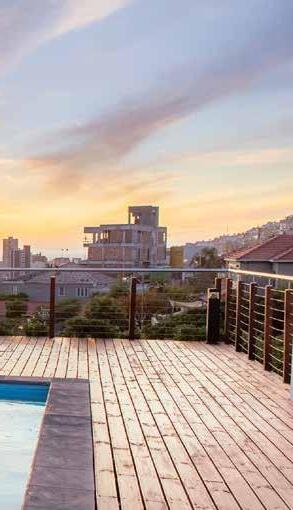
“Large property developers, like Berman Brothers, Elemental and S12J fund managers 12Cape, have either mandated
us to turn existing developments into aparthotels or brought us on at the onset to consult on a purpose-built property that will operate as an aparthotel.”
Aparthotels in the Totalstay collection include a mix of one-, two- and threebedroom apartments, which suit the needs of different sized groups. The company also manages smaller selections of units in existing blocks, which it deems ‘luxury suites’, as well as a bespoke collection of luxury holiday villas, ranging up to seven bedrooms in size. Operated under a management agreement with the block, owner or developer, Totalstay offers a full turnkey service including marketing, reservations, revenue management, on-site staffing, housekeeping and laundry services. All Totalstay properties offer 24-hour concierge, full kitchens, free Wi-Fi and hotelgrade amenities.
STATING A CASE
Average occupancy for summer at Latitude and Strand Beach in Sea Point averaged over 80%, with more than 50% of guests coming from South Africa, followed by a mix of international trade from Australia, the UK and USA.

For the year to the end of February, the bulk of guests still came from the local market, sitting at 55% for South Africa, followed by the UK and EU countries.
“Figures clearly suggest that the aparthotel offering is supremely popular with South Africans – domestic travellers who don’t have the financial wherewithal to afford more expensive options or who just demand more value for their spend,” says Rael.
However, Wayne believes that South Africans are largely unaware of the attractiveness of the aparthotel option, partly because this kind of accommodation offering has previously been managed on an ad-hoc basis, and that the way in which Covid-19 has constrained travel spend will present new, exciting opportunities.
“For hotel investors, it presents an opportunity for possible conversions into other real-estate assets like aparthotels. The benefit of aparthotels is that they represent a quick, more risk-averse exit strategy than conventional hotels, as they can easily be sold off on a sectionaltitle basis as micro apartments or coliving apartments.”
Totalstay started taking this approach in 2018, and property investors took an interest almost immediately, buying into the development and then leasing their apartments back to Totalstay as part of the pool. “Once we had the figures to suggest demand for this type of accommodation, property investors saw the yield and returns, and it was then a no-brainer for them,” says Rael.
Simon Bridges, developer and MD for Elemental, cites an additional appeal, and one that all South Africans can look forward to when the Covid-19 lockdown is lifted.
“Operating the building as an aparthotel brought life into it, with guests, happenings and foot traffic moving through on a daily basis. This just added to the marketability and appeal of the building, which became the wow factor when interested buyers were actually there, seeing things for themselves,” he concludes.
www.theplanner.guru MEETINGS l MAY/JUNE 2020 • 35
#APARTHOTELS







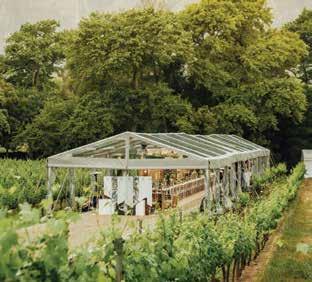
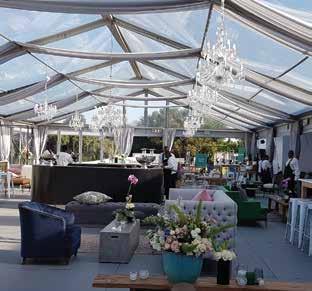

Visit our new website at Follow us on social media downingsmarquee.co.za Conference & Exhibition Halls Weddings & Events Marquee Infrastructure Storage & Warehousing Long & Short Term Rentals Accommodation & Disaster relief STRIVING FOR EXCELLENCE THROUGH DEDICATION, INNOVATION & SUPERIOR QUALITY CAPE TOWN: +27 (0)21 851 8844 | cpt@downings.co.za JOHANNESBURG: +27 (0)11 942 9530 | jhb@downings.co.za PORT ELIZABETH: +27 (0)41 373 2524 | pe@downings.co.za 20 YEARS OF EXCELLENCE Transform your venue to something magical
New roles, new expertise
At what is likely to be seen as the height of the Covid-19 pandemic, centres around the world are engaging with clients and communities in some very different ways, all of which will leave them better positioned to play their role in driving not only industry recovery but recovery in all those other areas – economic, professional, educational and social – that will be so desperately needed to return to some form of normalcy.
The lessons they learn will enable them to better accommodate future events where security and health confidence will be an essential component of giving nervous delegates the confidence they will need to re-engage.
At the same time, they are redeploying and maintaining many services that would otherwise risk the kind of deterioration that a lot of businesses are likely to experience in a world of enforced reductions in activities. Kitchens are serving larger community and emergency health needs; exhibition set-up crews are creating hospital rooms from modular hardwall supplies; electricians are wiring new medical facilities – all resources that will be needed to rebuild event capabilities once the wave has passed.
RETURNING TO BUSINESS

How else will centres be better prepared to a return of business?

First, they will have fine-tuned policies and resources to manage events safely in the face of ongoing health and safety concerns. These in turn will be closely tied into other local resources that are not necessarily available or even known to organisers.
Second, they will have gained even more experience and insights into how their venue facilities and service resources can be used
to greater advantage. This means they can suggest new ideas, including in areas like social distancing and other protocols that are becoming more important under what will likely be ongoing expectations. It also means they will have insights into how events may be reconfigured to better accommodate different event sizes and formats that may be part of a transition moving forward.
Third, they will be on top of a supplier situation that is likely going to be very different, as many companies experience staff reductions and changes arising from the economic impacts accompanying the pandemic and the need for consolidating or re-configuring organisations and offerings. This may well result in changes in both products and relationships; here, again, centres are going to be in the best possible position to advise on local and regional resources, based on their ongoing experiences with other clients and events on their premises.
Finally, centres and their technical suppliers will have had a lot of opportunities to advance their knowledge and capabilities around the requirements of hybrid and remote meetings and content. The demand for webinars and other interactive components was already growing rapidly before the pandemic, but this is likely to be even more important moving forward, particularly in the transition period. Again, centres will be well equipped to deliver the best possible advice and services.
At a time when many parts of the global economy are slowing or already dormant, centres are carrying on and learning in the process. As a result, they will be in the best possible position to help organisers respond to the kinds of adaptation needed to restore the industry to full strength as we all move forward.

VIEWS
INDUSTRY
Globally, convention centres are repurposing themselves to the meet the immediate demands of communities in the fight against the Covid-19 crisis. Aloysius Arlando reveals how these venues can contribute to frontline support.
ALOYSIUS ARLANDO is the president of AIPC and the CEO of SingEx.
TALKING POINTS
Venues on the frontline of Covid-19
www.theplanner.guru MEETINGS l MAY/JUNE 2020 • 37
Safeguarding success

Projeni Pather on rallying together to secure the exhibition industry’s collective business futures.

While no one is certain of the end, there are some considerations that exhibition and event organisers can factor in when navigating the Covid-19 crisis.
If you haven’t already, identify events that fall within the 90-day ban period that may require postponement or cancellation. Asses the financial risk and negotiate with suppliers where spend has already been allocated and pay for services already rendered or extend these to a new date. Enquire about venue availability at a later stage but have a follow-up plan in place and communicate with all stakeholders when the next event will be, to ensure there is longevity for your brand.
If you intend on postponing and have access to insurance, understand the requirements of the insurer and follow the steps that will enable you to make a claim.
Post pandemic
Work with your venue to have signage in case your event participants arrive on the originally scheduled dates. Refund paying visitors or delegates; however, explore alternatives such as new dates and providing them with a credit towards the next event or upgrading them for new event dates at no cost. Encourage exhibitors to continue with their marketing plans and stand-build preparations – they may be motivated to secure current pricing and ensure efficient delivery from suppliers.

AAXO is committed to working with our members to ensure the continued success and longevity of our industry. At this point in time, we must be careful about flooding the market with similar events within close timelines, so investigate opportunities to partner with other organisers where there is a crossover, and be open to different ways of doing business.

At the time of writing, South Africa has just entered Stage 4 of lockdown and we are trying to imagine what our world will be like when we finally get past Stage 1. What will our new normal be, and how will events be different?
I believe that, if anything, sustainability should be even more vital. While the coronavirus pandemic was not caused by climate change, deadly pathogens and more frequent pandemics are some of the risks of global warming. Take a moment to imagine Covid-19 during a drought, or with mass human migration due to famines. How badly things can go is truly terrifying.
Covid-19 has shown us how fragile our comfortable, man-made world is. It has also shown us that our health and well-being must always be a priority, and that we can act and do the right thing – even when the economic cost is painfully high. The rapid decline in air pollution has also shown us how directly our actions affect the environment, and that mother earth can heal if we just give her a chance to.
As we start to rebuild our post-Covid-19 world, I would strongly encourage everyone to adopt a more sustainable attitude. Prevention is easier, and less costly in the long term, than trying to deal with a crisis that is snowballing out of control. The actions we take today can help us avoid disasters and human tragedy tomorrow. What we do matters. Make it count.
38 • MEETINGS l MAY/JUNE 2020 www.theplanner.guru DESTINATION
TALKING POINTS
Sustainability needs to be at the core of your business because we cannot risk a repeat of Covid-19 happening, says Greg McManus
GREG MCMANUS is the EGF chairperson.
your business better INDUSTRY
Riding out the Covid-19 storm
Build
VIEWS INDUSTRY VIEWS
PROJENI PATHER is the chairperson of AAXO.
Covid-19 has shown us how fragile our comfortable, man-made world is. It has also shown us that our health and well-being must always be a priority, and that we can act and do the right thing –even when the economic cost is painfully high
INDUSTRY VIEWS
Collaboration is key
As I write this, we are trying to make sense of the world we’ll live in post Covid-19.
Although early indications are that South Africa may not face the extent of the human tragedy that we’ve seen in parts of Europe and the USA, the impact of the pandemic locally has been far reaching. Add to this the recent downgrade of South Africa by ratings agencies, as well as predictions that the economy will shrink by 6% in the next few months, the short-term economic outlook is bleak.
The business events sector has reeled under widespread cancellations due to the impact of Covid-19, with a significant number of job losses and insolvencies expected. Even our own SAACI annual congress was postponed to next year.
I noted in my previous column that SAACI is rolling out a carefully plotted plan of collaboration this year; we are now fully aimed at helping members to survive the immediate economic crisis and

Reaching out
steering the industry toward recovery, and on a new growth path.
At SAACI, we are doing our utmost to be a conduit of information and help members pursue new business opportunities to stay afloat. Our ‘Re-Boot’ webinar was the beginning of our approach to bring in external experts to help the business events industry move forward post Covid-19. We have also stepped up communication and trust that members have found it truly valuable.
Membership of a representative industry association is crucially important and now, more than ever, collaboration is key. Collaboration with other members who have knowledge or skills, collaboration with colleagues, suppliers, government – anyone who can contribute to the survival of businesses and the industry because together, we can weather the storm!
For more information and further resources, follow SAACI on social media.

We are certainly living through a time that will forever be cemented in history, and the world we now live in is very different to the one before.
The tourism, hospitality and events industries have taken such an incredible beating and left many of us feeling very low and lost.

At this time, we at Travelbags feel it is more important than ever before to reach out to and connect with our members and industry community. Even though we cannot host monthly networking events, we still want to network and connect. In order to achieve this, Travelbags has started online webinars focusing on interesting topics that cover tourism, hospitality, events and everyday needs and topics that we – as a community and as humanity – now face in
our new world. Travelbags is still focusing on charity and how we can do our part towards assisting those in need due to Covid-19. Every month, we will be hosting a raffle to raise funds for our chosen charities of the month; we also want to support our members who may need assistance with food parcels or essential items during these trying times.
We know we will get through this as a community but, in order to do so, we need to stand together to fight this virus so that we can adjust to what the new normal will look like. I believe that, in a post-pandemic era, we will have found a sense of humility, respect and gratitude for every aspect of our lives that we can again experience.
Until then, stay home, stay safe and for now, let’s rather meet virtually.
www.theplanner.guru MEETINGS l MAY/JUNE 2020 • 39
The need for industry to come together is now more important than ever, says Glenton de Kock.
MICHELLE
HINRICHSEN
is the current president of Travelbags. Everyone can play a part The importance of staying connected. INDUSTRY VIEWS
GLENTON DE KOCK is the CEO of SAACI.
#INDUSTRYINSIGHTS
While we adjust to the new normal, it is important to stay connected, says Michelle Hinrichsen.
UNTIL WE MEET AGAIN
From going about our daily lives, to traversing across the globe, each aspect of our movement has now been restricted. Travel bans have wreaked havoc, leaving many stranded and far from their homes, work and loved ones, with lockdowns to contain the virus resulting in airlines grounding entire fleets and most borders shut to all international travellers.
Social gatherings are still off the cards for what some say will be “many months”, and while the business events and tourism industries are most heavily impacted, it is interesting to note that there are companies seeing greater demand for their products and services and revenues soaring as a result – Amazon Web Services, as an example, has reported a 26% increase

in its year-on-year revenues for the first quarter of the year, during a time when other companies have been suffering losses into the billions.
Why are the earnings of a major global corporation relevant to us? Well, in short, the answer can be found in its tech solution.
DIGITAL DIVIDE

Those with e-commerce offerings are demonstrating incredible resilience during this time, showing that, in order to reach our audiences, our products and services –now more than ever – need to be relevant to a pandemic-era market and have a clearly defined and well-thought-out digital and online component.
REMEMBER!
In a day and age where attention spans and information retention are increasingly shortened, it is key to understand your end-user experience, particularly when you only have a few microseconds to grab the eyeballs of those all-important decision-makers.
In the MICE sector, we have seen a huge surge in the range of digital events, with entertaining brunches, high-level panel sessions and plenaries running over a full day, as well as informative webinars all forming part of this quickly evolving space. While many agree that digital can never outright replace a live, in-person event, trends before Covid-19 were already pointing strongly towards a move to online.
In the world of media, marketing and messaging, content is king and, even with where we are, the basics still apply; target audiences are defined as the right decisionmakers, or those with buying power, where the aim is to ‘be seen’ and make the right impression, in the right place and at the right time.
MISS MEET INDEX TO ADVERTISERS Africa Travel Week OBC AV Active 3 Brandex OFC, 6 CTICC IFC, 14 Downings 21, 36 Garona Communications & Projects IBC Gorgeous George 11 SANCB OFC, 17
40 • MEETINGS l MAY/JUNE 2020 www.theplanner.guru
What. A. Year. And we’re not even halfway through! When I wrote this column for the last edition of Meetings magazine, little did any of us know just how much the industry, and world, would change.


















D RECT MARKET NG ASSOC AT ON O SA
Africa Travel Week Connect – a virtual hub packed with thought-provoking content, industry news and insights as well as the opportunity to hear from experts on a variety of topics. All with the aim to keep all of us in the travel, tourism and business events industry connected.

MAKE YOUR VOICE HEARD

We also want to hear from you! Join us for our #INTHEKNOW virtual event series where we ask you and other attendees to solve important problems we are facing right now in business.
ATW Connect focuses on inbound and outbound markets for general leisure tourism, luxury travel, LGBTQ+ travel and the MICE/business travel sector as well as travel technology.

TO JOIN THE DISCUSSIONS AND TO FIND OUT MORE, VISIT

www.atwconnect.com














































































































 By Barbara Larson, Susan Vroman & Erin Makarius originally for Harvard Business Review
By Barbara Larson, Susan Vroman & Erin Makarius originally for Harvard Business Review





















































































